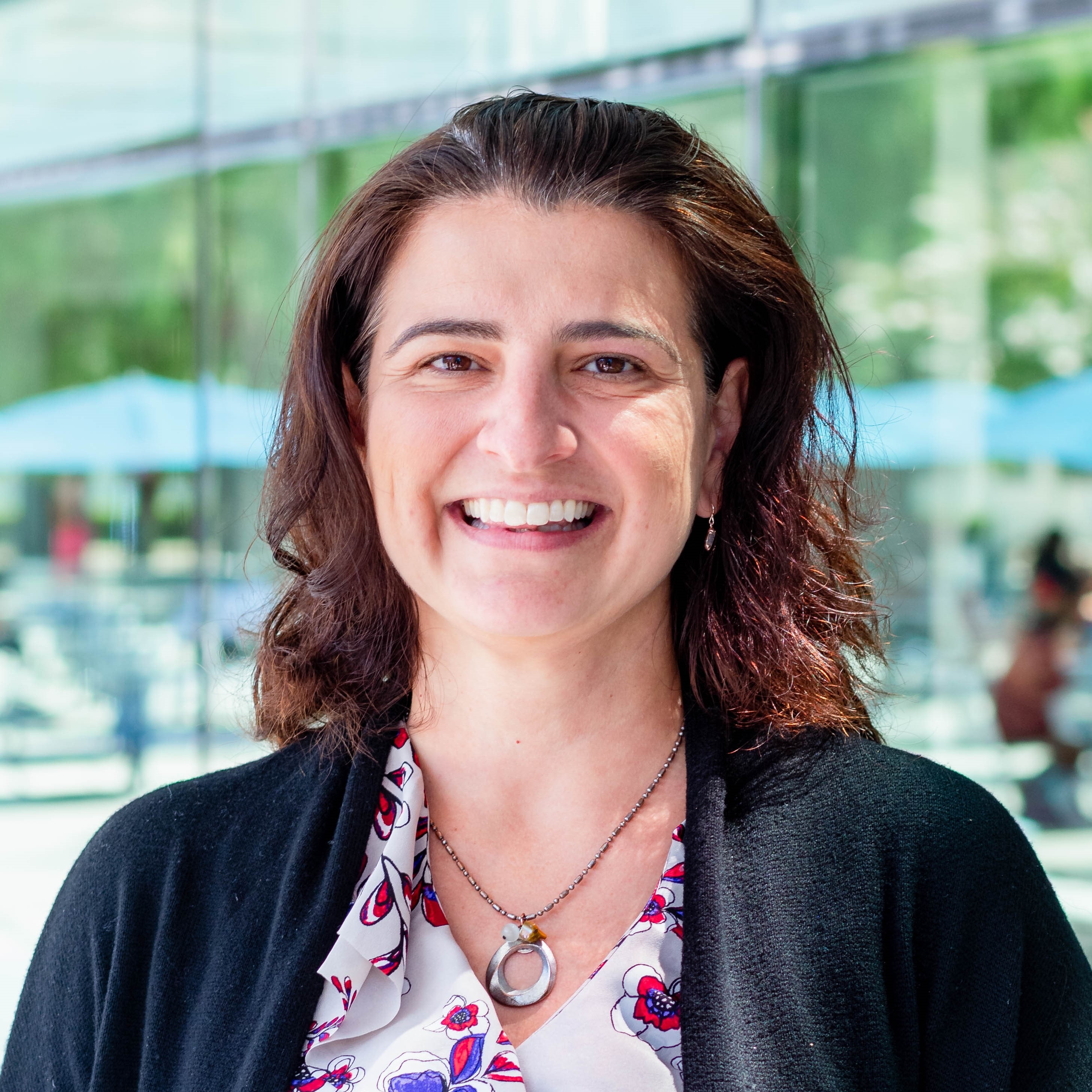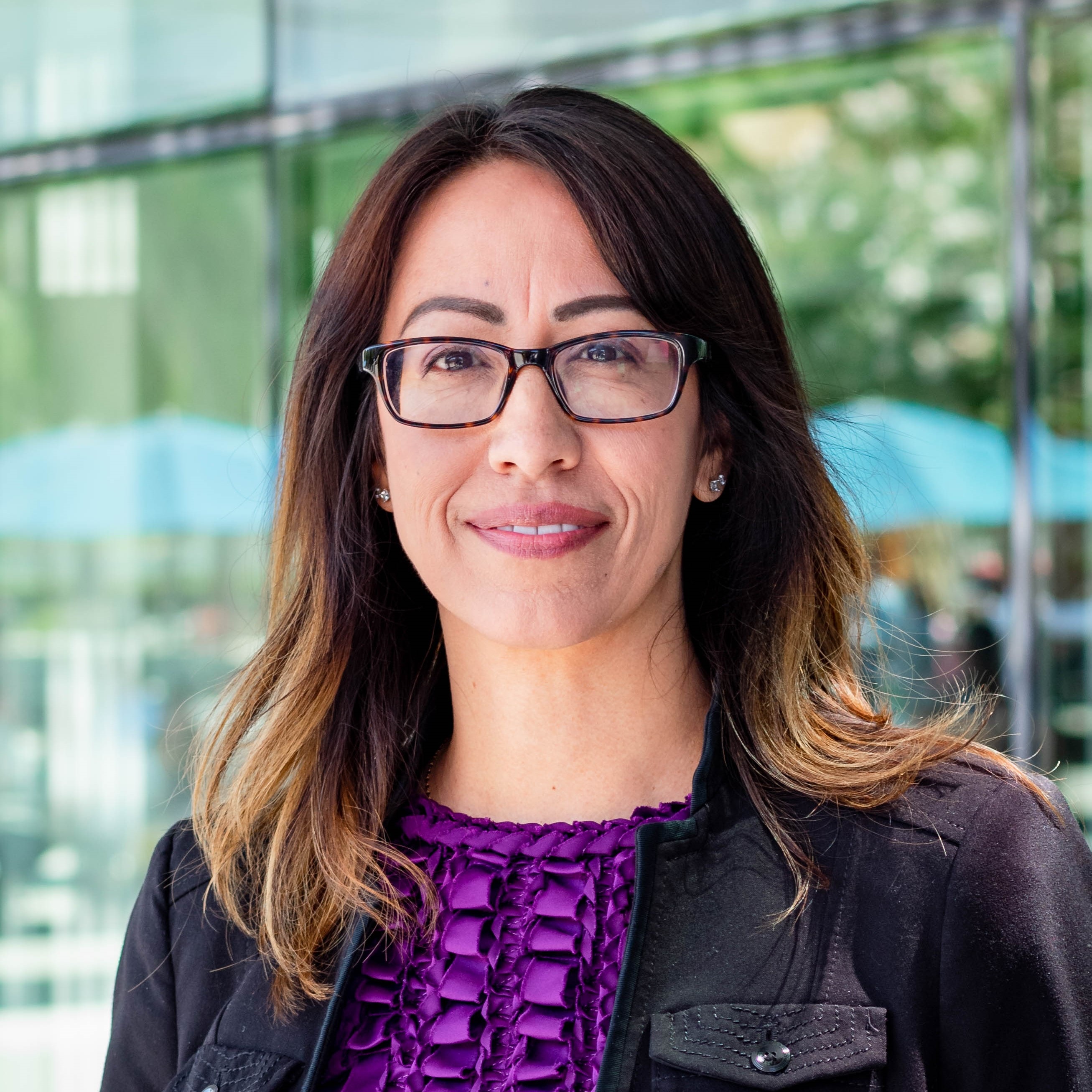Faculty
The Ed.D. Educational Leadership Program faculty are scholars, researchers, and practice-based experts from within and outside SJSU who are committed to preparing collaborative, transformative leaders capable of building school systems free from oppression, injustice, and inequality as well as to closing the opportunity gap resulting in educational disparities and social inequalities.
Director
Ferdie Rivera, Ph.D. 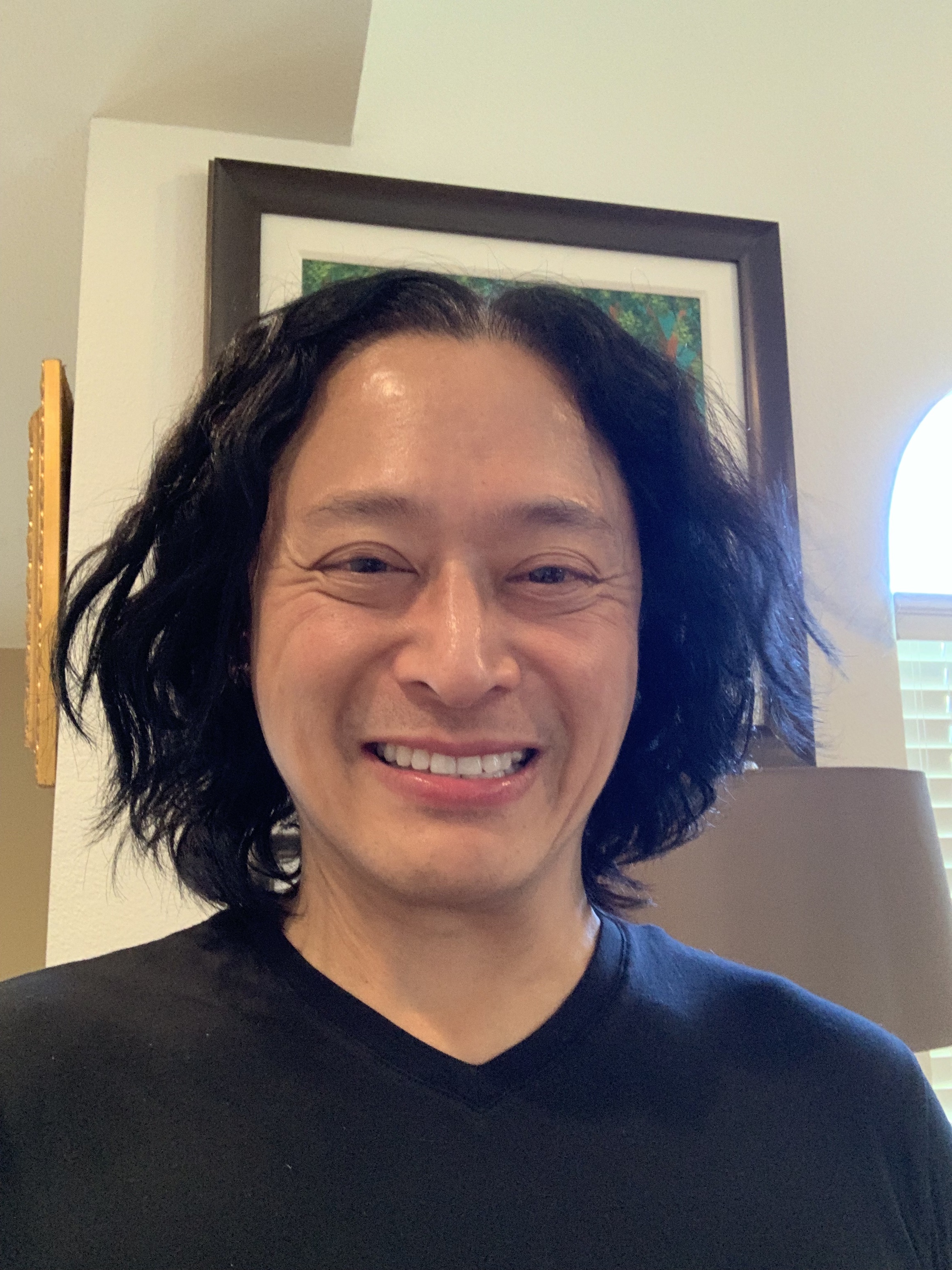
[email protected]
Sweeney Hall 402
Dr. Rivera's Bio
Ferdie Rivera is Professor in the Department of Mathematics and Statistics and Director of the Ed.D. Leadership Program at the Connie L. Lurie College of Education at San José State University. Dr. Rivera has secured over $7.5M of federal, state, and local grants to conduct research in the following areas: school-based mathematics cognition, improvement science, and implementation research.
Dr. Rivera's current research interests involves: (i) investigating virtual reality-mediated representational tools for learning and teaching mathematics, which draws on an embodied, enactive, extended, and embedded views of cognition; (ii) developing scaling-for math and AI literacy and equity and justice models in math teacher preparation and education; (iii) understanding teacher effectiveness and retention among CSU single subject credential program completers in their first five years of full-time teaching; and (iv) exploring the 2023 California Mathematics Framework, especially data science and the use of AI in PK-Grade 5 math classrooms. For more information about his research projects, please go to https://sites.google.com/sjsu.edu/ferdierivera/home. Dr. Rivera has published in top-tier journals, has authored several academic and professional books and book chapters related to his research, and co-edited special issues for academic journals and books.
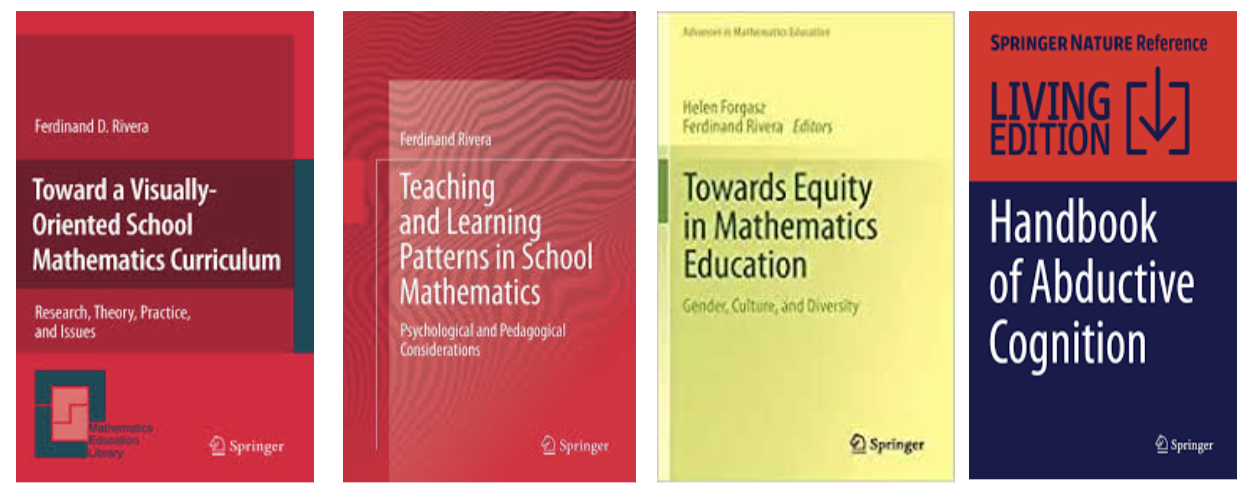
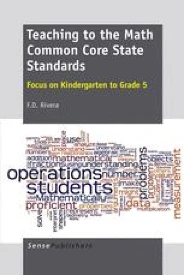
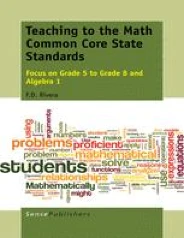
Core Faculty Directory, Bios, and Highlights
Mahima Agumbe Suresh,Ph.D.
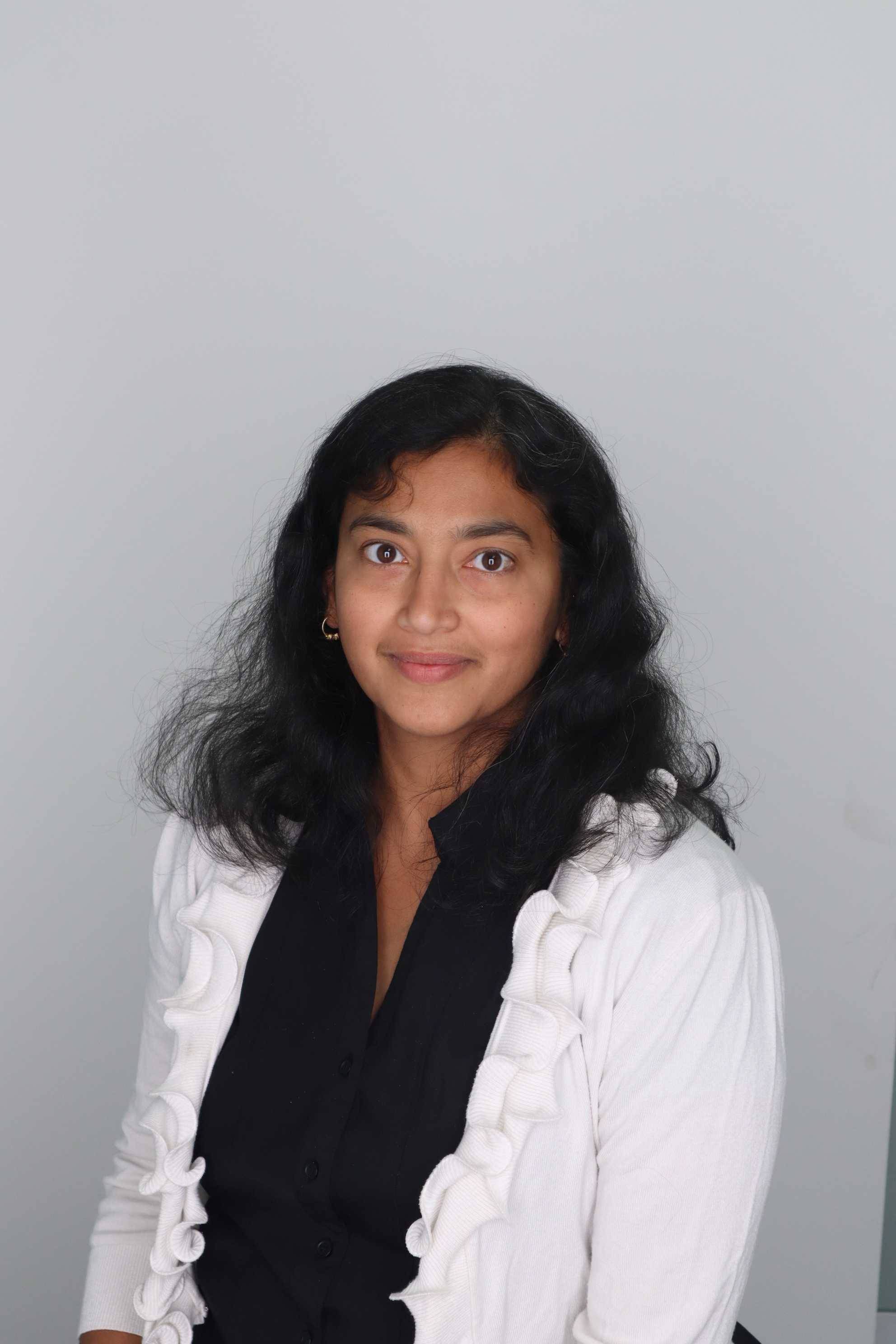
Associate Professor, Computer Engineering
Email: [email protected]
Phone Number: 408 924 2985
Mahima Agumbe Suresh is an Associate Professor at San Jose State University. She received her Ph.D. from the Department of Computer Science and Engineering at Texas A&M University in December 2015 following which, she was a postdoctoral researcher at Xerox Research Labs, India. Her research interests include edge computing, machine learning, federated learning, and engineering education.
Janet Y. Bang, Ph.D.
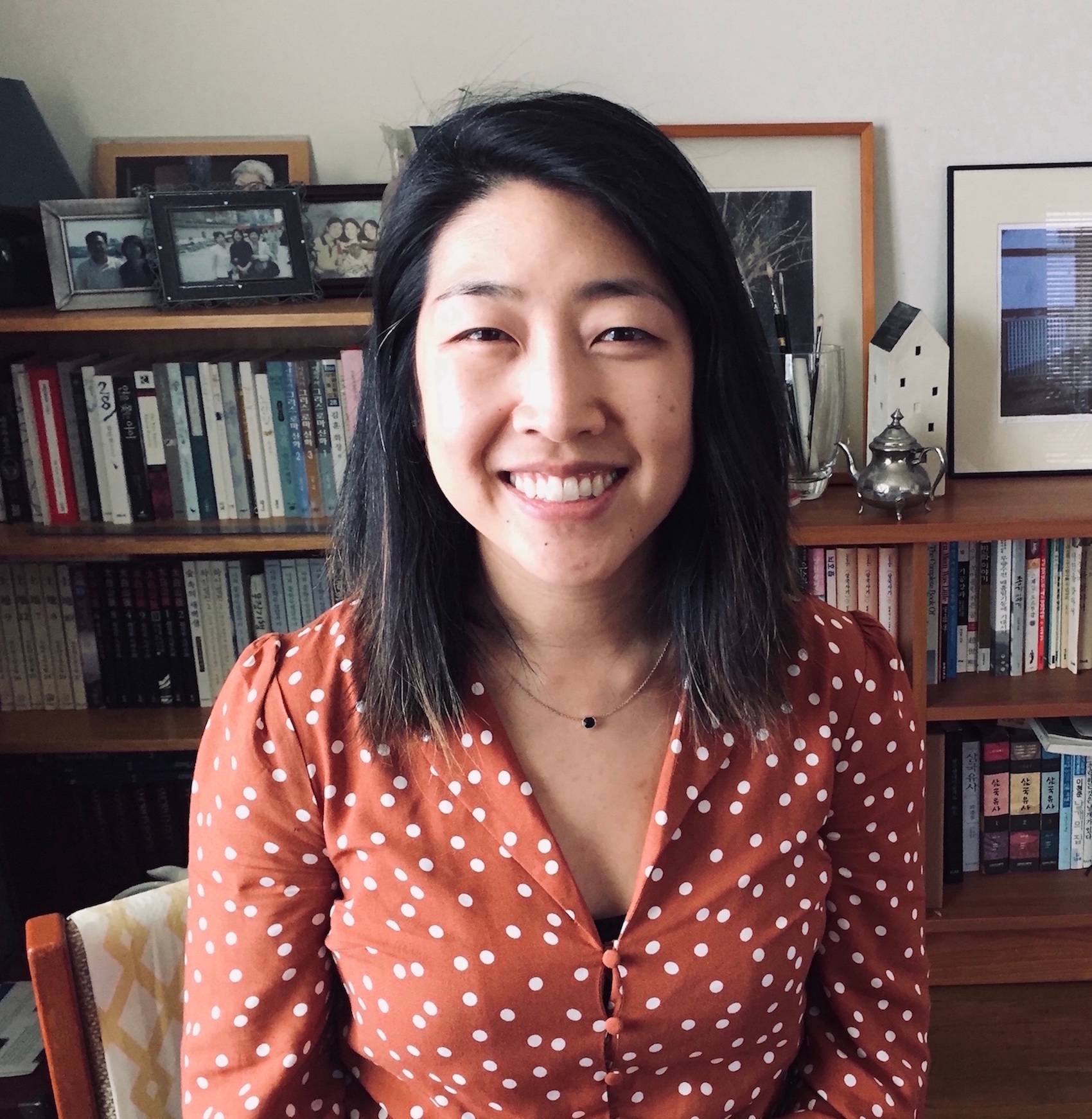
Assistant Professor, Child and Adolescent Development
Email: [email protected]
Phone Number: 650-276-9011
Dr. Bang's primary research interests are focused on how children learn language from their everyday interactions. Her work includes families from a variety of diverse cultural and linguistic backgrounds. Through her research and teaching she strives to build an understanding of child development that is true to the rich array of individual differences within and across communities. She is dedicated to using her research to empower families and educators with new insights into how to support early language and communication development. She engages in this work with motivated students who are a part of her Diverse Interactions Around Language (DIAL) lab!
Allison Briceno, Ed.D.
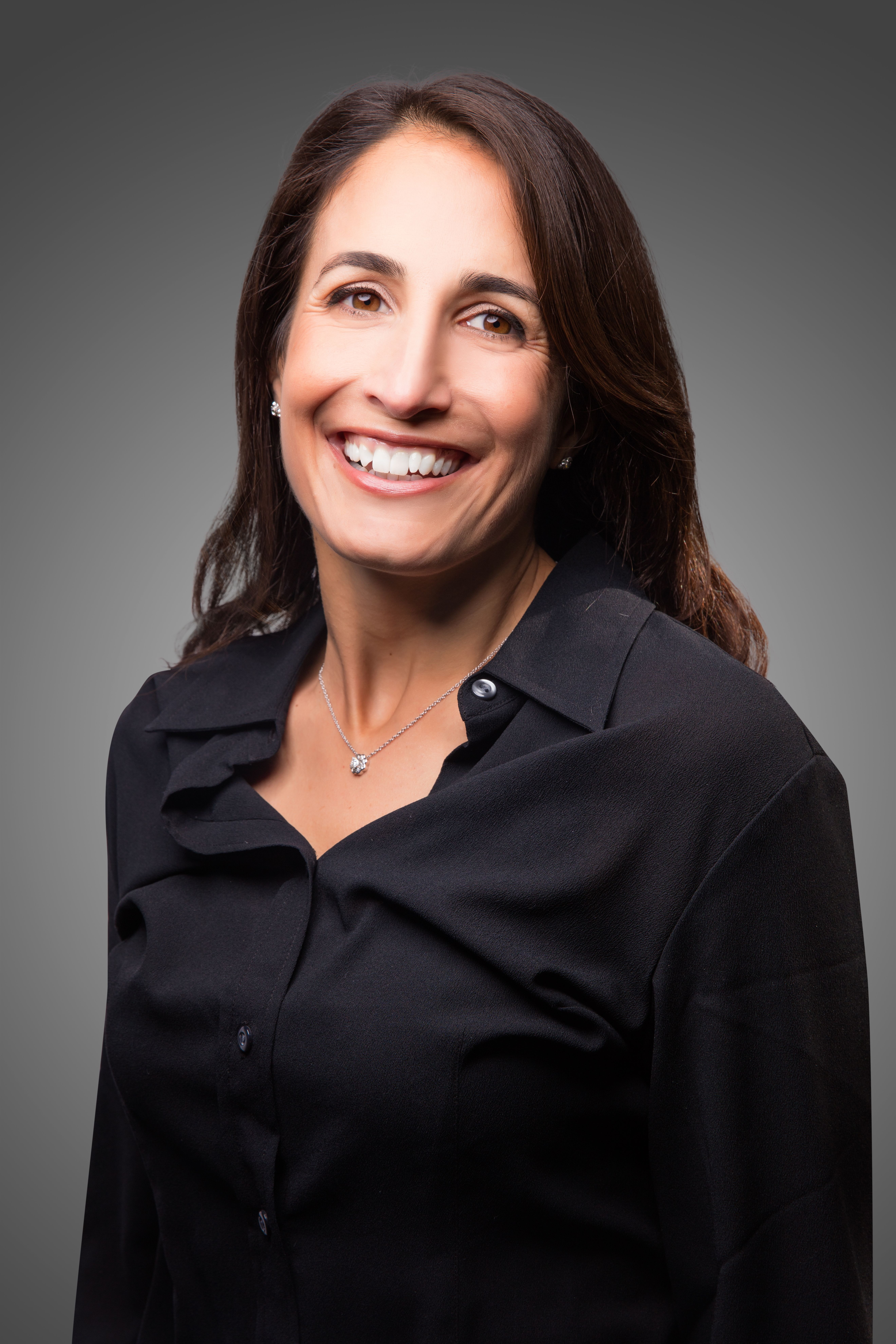
Dr. Allison Briceno
Professor, Teacher Education Department / Affiliations: Critical Bilingual Authorization,
Ed.D. Program
Email: [email protected]
Phone number: (408) 924-3730
Dr. Allison Briceño is a Professor in the Teacher Education Department. She recently took a leave of absence from SJSU to serve as Chief of Staff to the Secretary of Education in New Mexico. Prior to SJSU, Dr. Briceño was a dual language teacher, bilingual literacy specialist, literacy coach, professional developer, and district literacy coordinator. Currently, she is an editor for the International Literacy Association’s journal, The Reading Teacher and co-PI on a National Professional Development grant: Bilingual/Biliterate Instruction for Bilingual Youth. Dr. Briceño developed and coordinates the Multilingual and Multicultural Literacy Education MA program. Her recent scholarship has appeared in The Reading Teacher, Language Arts, Bilingual Research Journal, Teacher Education Quarterly, Action in Teacher Education, Educational Policy, and Language and Education. She also recently published a book, Conscious Classrooms: Using Diverse Texts for Inclusion, Equity, and Justice (2022).
Dr. Briceño has three intersecting areas of expertise: (1) the development of teachers, especially bilingual teachers, to serve multilingual learners; (2) the teaching and learning of literacy and biliteracy; and (3) culturally and linguistically sustaining pedagogies that address issues of race, class, language, and power.
Rebeca Burciaga, Ph.D.
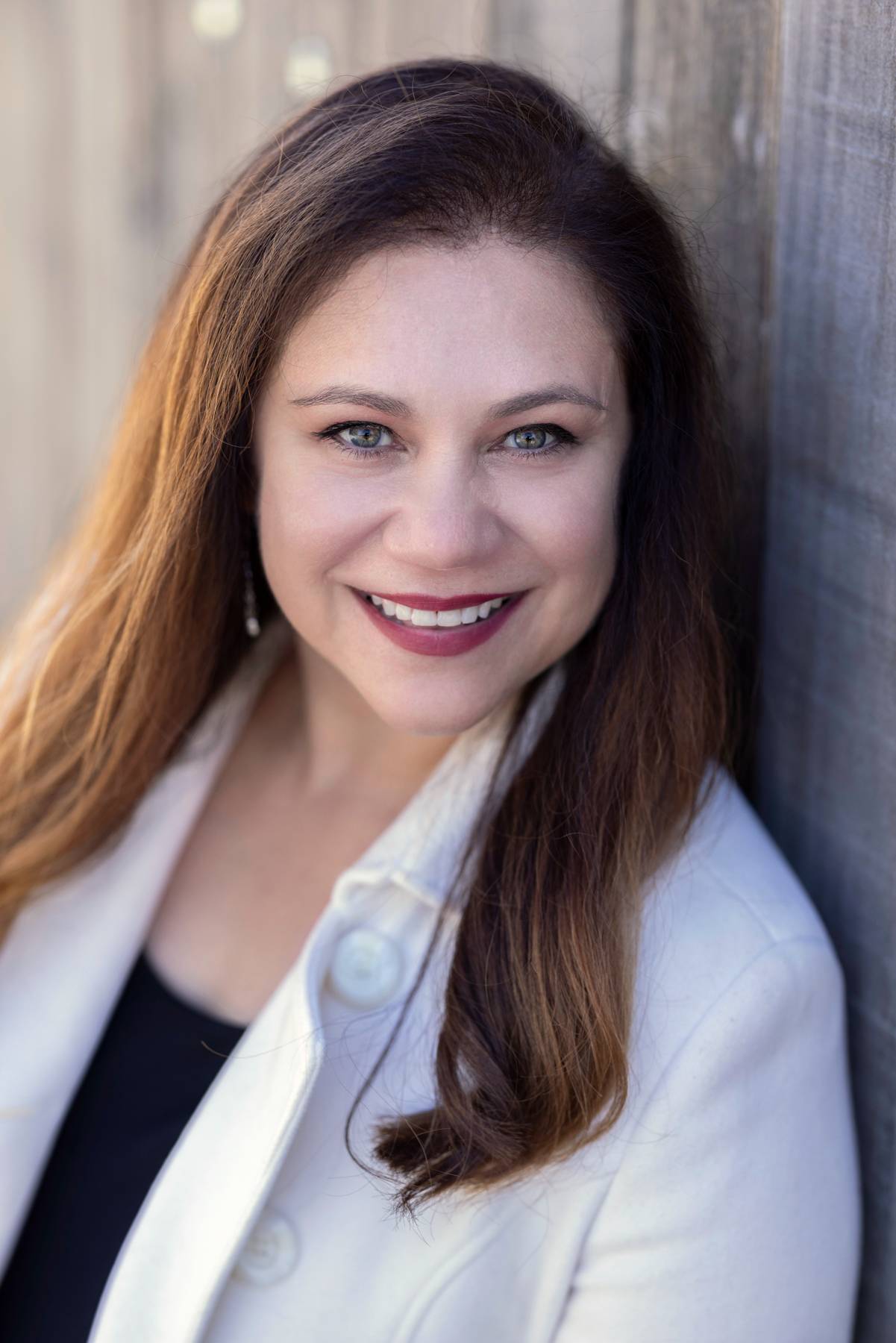
Professor, Educational Leadership & Chicana and Chicano Studies, Program Founder and
Coordinator, Emancipatory Leadership MA Program
Email: [email protected]
Phone number: 408-924-3644
Dr. Rebeca Burciaga is a Professor of Educational Leadership with a joint appointment in the department of Chicana and Chicano Studies. Her research is nested in the nepantla (borderlands) of Education and Chicana/o Studies and focuses on the schooling experiences of Chicanx and Latinx students, families, communities, educators, and leaders. Her current projects focus on culturally sustaining approaches to school leadership. Dr. Burciaga’s areas of expertise include qualitative methodologies (testimonio & ethnography), critical theories (critical race theory & Chicana feminist theory), and critical pedagogies.
Dr. Burciaga earned her B.A. from UC Santa Cruz, an Ed.M. from the Harvard Graduate School of Education, and a Ph.D. from the University of California at Los Angeles. She is the founder and coordinator of the Emancipatory School Leadership MA Program and served as the Founding Faculty Executive Director of the Institute for Emancipatory Education from 2020 - 2023. Her research has been supported by highly competitive funding including the Spencer Foundation, the Ford Foundation, and the National Institutes of Health.
Liliana Castrellón, Ph.D.
Assistant Professor, Educational Leadership
Kyoung-Mi Choi, Ph.D.
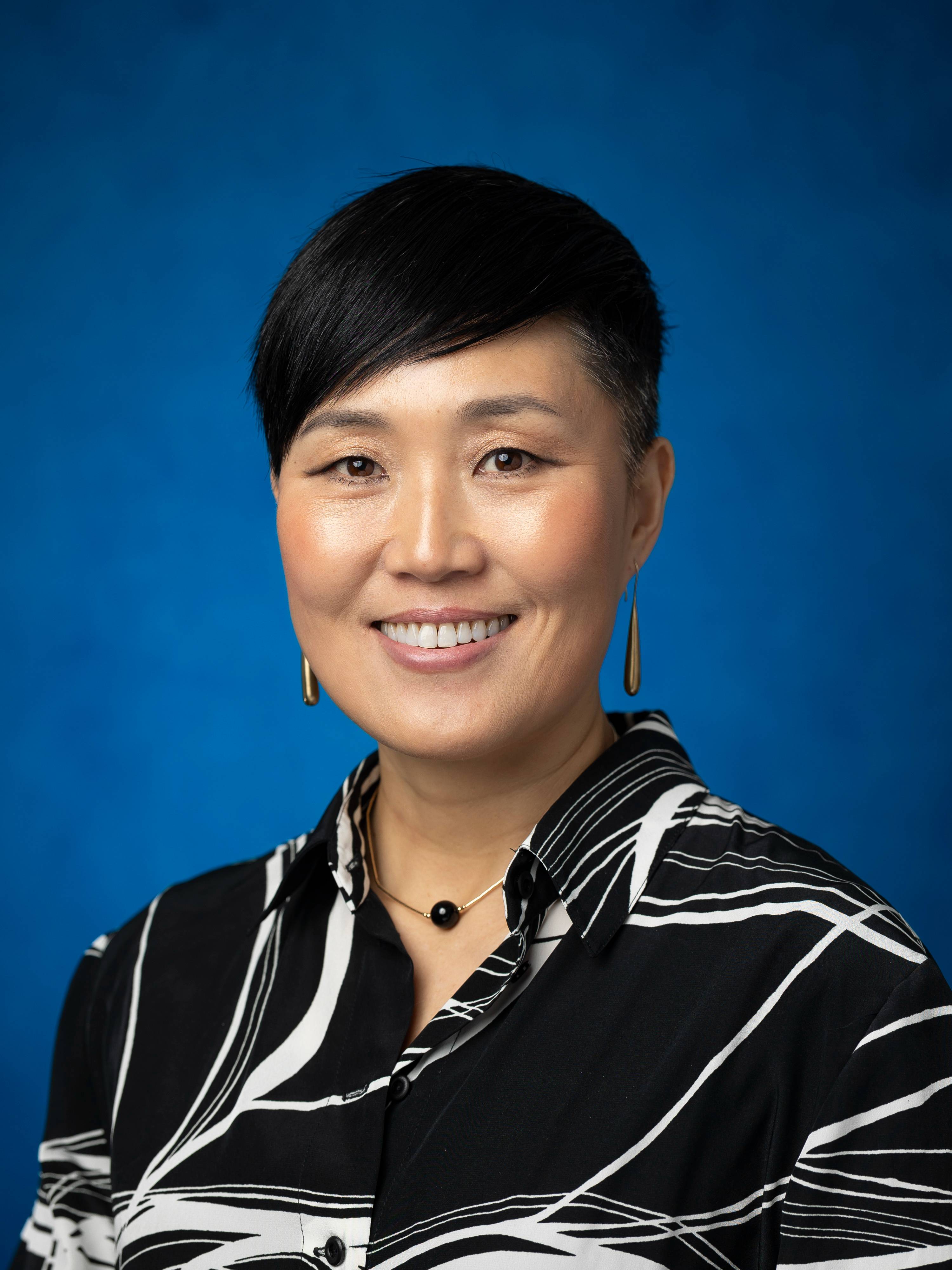
Professor, Counselor Education
Email: [email protected]
Phone Number: 408-924-3614
Dr. Kyoung Mi Choi is a Professor in the Department of Counselor Education at San José State University. Her research interests include culturally empowering psychoeducational approaches, mindfulness-based counseling interventions and programs, individuals and families in global transition, intercultural competency, and international education. Through the Ohana Project (2023-2025), funded by SAMHSA, she served as one of the program specialists responsible for developing programs and resources and training health professionals to enhance mental health and wellness for Asian Americans, Native Hawaiians, and Pacific Islanders (AANHPI). During her sabbatical, Choi is invited as a visiting researcher at Tilburg University in the Netherlands and is also a recipient of the U.S. Fulbright Scholar award to teach social-emotional learning classes and programs in Vietnam in 2026.
Choi holds a Ph.D. in Counselor Education and Supervision, along with two M.S. degrees in International Relations and School Counseling from Syracuse University. She has been honored as an NBCC International Fellow and received the NASFA Diversity Impact Program award. Choi has served on the board of Families in Global Transitions and contributed to editorial boards for journals like the Journal of Counseling and Development, Journal of College Student Development, and Journal of LGBT Issues in Counseling. Her collaborative work with Dr. Robert Marx in the Queer Educators and Counselors Network earned her the Community Advocacy Award at the 2022 AD 27 Pride Celebration, demonstrating her dedication to diversity and inclusion.
Arnold Danzig, Ph.D.
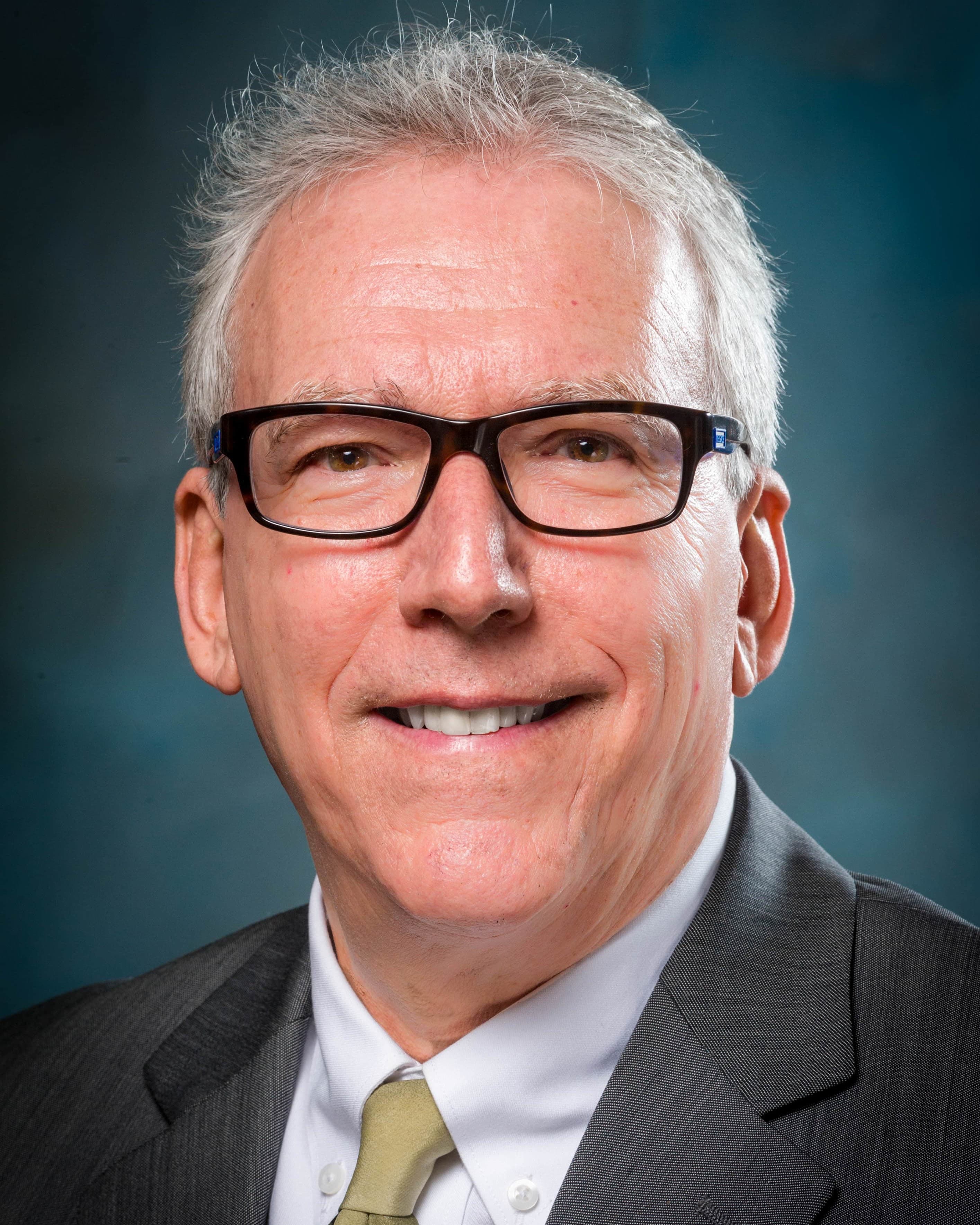
Professor, Educational Leadership
Email: [email protected]
Phone number: (480) 274-9043
Arnold Danzig is Professor and former founding Director of the Ed.D. Program in Educational Leadership in the Connie L. Lurie College of Education at San José State University. Prior to that, he served as Professor and Associate Director of the School of Public Affairs/College of Public Programs at Arizona State University. In 2009–2010, he served as Professor and Director of the Division of Advanced Studies in Policy, Leadership, and Curriculum, and Professor of Education Leadership and Policy Studies in the Mary Lou Fulton Institute and Graduate School of Education. He has also served as Associate Dean and Director of the D.E.L.T.A. Doctoral Program in Educational Leadership.
Dr. Danzig’s research offers a humanistic vision of leadership for schools and democratic institutions, with a deep and practical commitment to the betterment of individual and institutional lives. He has extensive international experience related to globalization and education policy and has led groups for international study in Europe, Mexico, and South America.
He has published numerous books and articles on educational leadership and education policy, including Learner-Centered Leadership: Research, Policy, and Practice (2007), and multiple editions of School Leader Internship: Developing, Monitoring, and Evaluating Your Leadership Experience (3rd Edition, 2012; 4th Edition, 2017; 5th Edition, 2022, Routledge). His edited volumes include Research in Learning and Teaching in Educational Leadership (2014, Information Age Publishing), co-edited with Liz Hollingworth; Who Controls the Preparation of School Administrators? (2019, Information Age Publishing), co-edited with William Black; and Who Decides? Power, Disability, and Education Leadership (2022, Information Age Publishing), co-edited with Cheryl O’Brien and William Black. His most recent edited volume, Navigating Charter School Landscapes (2025, Emerald Publishing), co-edited with Zorka Karanxha and William Black, explores the complexities of charter school governance, leadership, and policy.
Dr. Danzig has also been a contributing author and editor for the American Educational Research Association’s journal Review of Research in Education, including the 2012 volume Education, Democracy, and the Public Good (Volume 36), and the 2014 volume Language Policy, Politics, and Diversity in Education (Volume 38, co-edited with Kathryn Borman, Terrence Wiley, and David Garcia).
His recent chapters include:
Danzig, A., Black, W., and Karanxha, Z. (2025). A Roadmap for Navigating Charter School Landscapes. In Karanxha, Z., Black, W.R., & Danzig, A. (Eds.), Navigating Charter School Landscapes (pp. 1–35). Emerald Publishing.
Karanxha, Z., Black, W.R., & Danzig, A. (2025). Navigating Charter School Landscapes: An Introduction. In Karanxha, Z., Black, W.R., & Danzig, A. (Eds.), Navigating Charter School Landscapes (pp. 369–395). Emerald Publishing.
Zartoshty, P., Danzig, A., and Mourtos, N. (2025). Internationalization: Navigating Efforts Within a Systems Framework. In University Development and Administration: Trends, Internationalization and Regional Developments in Higher Education. Springer: Meteor.
Danzig, A., Black, W., & O’Brien, C. (2022). Scratch a Theory and Find a Personal Story: Navigating Dis/ability in the Home, School, and Workplace. In C. O’Brien, W. Black, & A. Danzig (Eds.), Who Decides? Power, Disability, and Education Leadership (pp. 691–707). Information Age Publishing.
O’Brien, C., Black, W., & Danzig, A. (2022). Introduction to Volume: Who Decides? In C. O’Brien, W. Black, & A. Danzig (Eds.), Who Decides? Power, Disability, and Education Leadership (pp. 3–22). Information Age Publishing.
Dr. Danzig’s published articles on educational leadership, school administration, professional development, and school-to-work transition have appeared in multiple journals, including International Studies in Educational Administration, Education Policy, Journal of Educational Administration, Educational Leadership and Administration, and Journal of Educational and Psychological Consultation.
Brent Duckor, Ph.D.

Director, Center for Innovation in Applied Education Policy
Email: [email protected]
Phone number: (510) 375-1917
Brent Duckor, Ph.D., is a Professor at SJSU’s College of Education who serves in the
Department of Teacher Education and the Ed.D. Leadership program. He is Executive
Director of the Center for Innovation in Applied Education Policy (IAEP). His training
in the Quantitative Methods and Evaluation program at UC Berkeley’s Graduate School
of Education informs his mixed methods research and applied policy focus. Dr. Duckor’s
expertise with the deep principles and practices of assessment, testing and evaluation
spans K-12 to higher education. Dr. Duckor is a leading scholar in the field of K-12
assessment for learning. His perspectives from the field of applied psychometrics
brings a unique commitment to and expertise with educational measurement across multiple
classroom assessment settings. His scholarship has appeared in Teachers College Record,
Phi Delta Kappan, Journal of Teacher Education, Journal of Educational Measurement,
Mathematics Teaching in the Middle School, Educational Leadership and most recently,
the International Encyclopedia of Education. He is the author of two internationally
recognized books with Dr. Carrie Holmberg. Mastering Formative Assessment Moves (ASCD,
2017) and Feedback for Continuous Improvement in the Classroom: New Perspectives,
Practices and Possibilities (Corwin, 2023) are both aimed at educators and leaders
interested in systemic change and scaling impact with evidence-based assessment for
learning practices. His latest book with Dr. Carrie Holmberg AI for Deeper Learning:
Promises, Possibilities, and Evolving Practices will be available with Harvard Education
Press in 2026. Dr. Duckor has served on state and national boards providing educational
assessment and measurement expertise to the California’s Commission on Teacher Credentialing,
the California Department of Education, the College and Career Readiness Evaluation
Consortium for the National Council for Community and Education Partnerships in Washington,
D.C. Dr. Duckor is a former high school teacher at Central Park East Secondary School,
a nationally recognized new urban high school in New York City’s District 4, where
he taught History, Economics, and Civics /Government in the Senior Institute. For
over 30 years, Dr. Duckor has blended his passion for linking policy with practice,
and works to inspire new teachers and educational leaders to work closely together
on behalf of traditionally underserved students. His research agenda for the Center
emphasizes policy impacts of different state-led and local accountability regimes
on at-promise children and teens and how teachers, staff, and administrators can empower
students through classroom assessment and ambitious teaching practices centered on
deeper learning to close opportunity gaps. Professor Duckor earned his B.A. in Politics
with Honors from UC Santa Cruz in 1987. He obtained a Master of Arts in International
Affairs with a business concentration from Columbia University in 1993. Dr. Duckor
received his Ph.D. in Quantitative Methods and Evaluation from UC Berkeley’s Graduate
School of Education in 2006.
Shinchieh (CJ) Duh, Ph.D.
Professor, Psychology Department
Email: [email protected]
Phone number: (408) 924-6039
Dr. Shinchieh (CJ) Duh joined the Department of Psychology at San José State University in 2014. She earned her Ph.D. in Developmental Psychology from the University of California Santa Cruz in 2014 and has also been an adjunct faculty at San Francisco State University (Fall 2011-2013, Summer 2017-19, 22-24). Her research focuses on social and emotional development, the processes of teaching and learning, and cross-cultural comparisons (including the U.S., France, Taiwan, Korea, Singapore, and China thus far). Her scholarly work can be seen in several referred journals including Cognitive Psychology, Developmental Psychology, Children and Youth Services Review, Journal of Cognition and Development, Journal of Research in Childhood Education, and Journal of Education and Learning.
Deanna Fassett, Ph.D.
Professor and Chair, Department of Communication Studies
Email: [email protected]
Phone number: (408) 924-5511
Dr. Fassett is Professor of Communication Pedagogy at San José State University, where she teaches and researches at the intersections of communication and learning. Her work is informed by critical theorists who illuminate how communication shapes access, inclusion, belonging, and success in education.
I have authored, co-authored, and edited several books, chapters, and articles on topics such as critical communication pedagogy, faculty development, mediated communication, online learning, and public speaking. Additionally, I have served SJSU in a number of leadership roles, including as Assistant Vice Provost, Director of the Center for Faculty Development, Department Chair, and Graduate Teaching Associate Supervisor.
Veneice Guillory-Lacy, Ph.D.
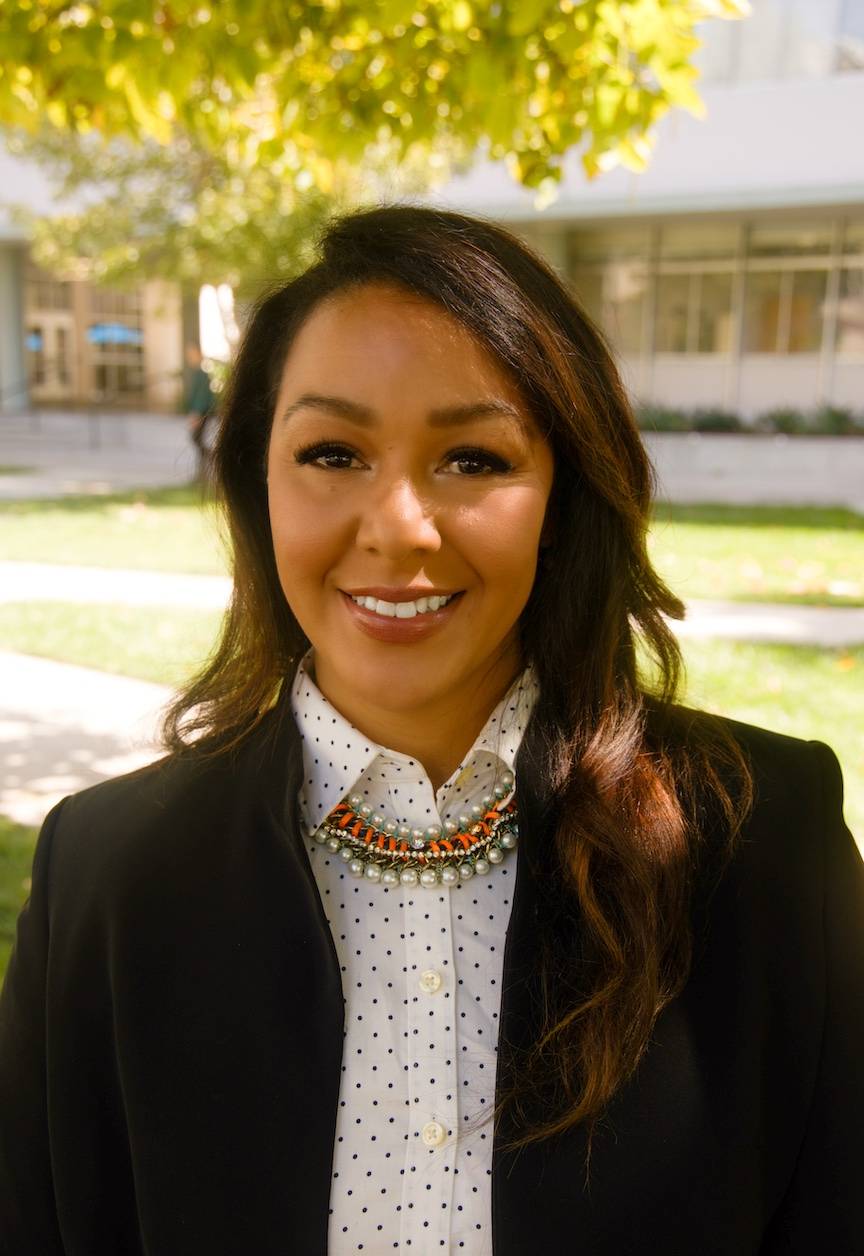
Assistant Professor, Counseling Education/ (UROP) Undergraduate Research Opportunity
Program
Email: [email protected]
Veneice Guillory-Lacy is Assistant Professor of Counseling Education in the Connie L. Lurie College of Education at San José State University. She earned her Ph.D. from Washington State University (2020), an Ed.S. from the University of Idaho, and a B.A. from the University of Idaho. Her research examines Indigenous and Native American student experiences, Black women’s leadership in K–12 education, decolonizing methodologies, and educational equity. As a co–principal investigator, she is leading projects on Native American student experiences at SJSU, study-abroad participation among BIPOC doctoral students, Black women in K–12 leadership, and the support systems that enable Black engineering students’ success (NSF proposal). Methodologically, Dr. Guillory-Lacy draws on qualitative and critical qualitative inquiry, Tribal Critical Race Theory (TribalCrit), Critical Race Theory (CRT), and relational pedagogies.
Her scholarship appears in SAGE Research Methods, the International Journal of Qualitative Studies in Education, Professing Education, and Social Alternatives, alongside public writing in Newsweek and Visible Magazine; she also has a forthcoming book chapter with Information Age Publishing. Dr. Guillory-Lacy’s honors include the Exceptional Levels of Service to Students Award (2024–2026), the GAIN Leadership in Education and Advocacy Award from the California State Assembly (2023), a Public Voices Fellowship, and the ELEVATE Fellowship at Rutgers University. She serves as President of the Gathering of Academic Indigenous and Native Americans (GAIN) at SJSU, Vice President of the American Indian Cultural Center Executive Board in San Francisco, and faculty with both SJSU’s Undergraduate Research Opportunity Program (UROP) and the Ed.D. Study Abroad Program. Guided by her Black and Nimiipuu (Nez Perce) heritage, Dr. Guillory-Lacy advances research, counseling education, transformative leadership, equity, healing, and justice through community-based and relational approaches.
Krithika Jagannath, Ph.D.
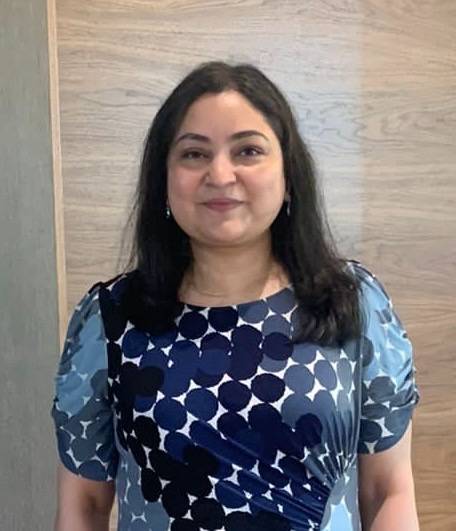
Assistant Professor, Department of Child and Adolescent Development
Email: [email protected]
Phone Number: 408-924-3711
Krithika Jagannath is Assistant Professor of AI and Emerging Technologies for Learning. Her research centers on designing kid-friendly technologies with and for youth, using mixed-methods and asset-based design in partnership with young people and youth-serving communities. Focusing on online, play-based contexts such as Minecraft and Discord, her work bridges Human–Computer Interaction, Developmental Science, the Learning Sciences, and Computer Science to advance age-appropriate design of AI and emerging technologies, with particular attention to very young adolescents (ages 7–14). She holds a PhD in Informatics (Human-Computer Interaction) from the University of California, Irvine; an Ed.M. in Technology, Innovation, and Education from the Harvard Graduate School of Education; and a B.E. in Computer Science and Engineering from Bangalore University. Dr. Jagannath’s recent and forthcoming publications include “Camp Counselors in Online Play-based Programs for Young Adolescents” (with Katie Salen Tekinbaş), under preparation for the ACM CSCW Journal; “Meaningful Play: Social Connection in an Online Community for Grieving Youth” (with Katie Salen Tekinbaş), a manuscript in preparation for the Child-Computer Interaction Journal; “Promoting Youth Interests through Virtual Playgrounds Designed for Young People: An Analysis of Design Features of Kid-/Family-Friendly Minecraft Servers,” currently in submission; and “Beyond Just Rules: Server Rules for Shaping Positive Experiences in an Online Play Community for Youth” (with Katie Salen), published in Proceedings of the ACM on Human-Computer Interaction, CHI PLAY (2022), Article 222 (doi:10.1145/3549485). She is an active member of the Association for Computing Machinery’s Special Interest Group on Artificial Intelligence (ACM SIGAI), a Connecting the EdTech Research Ecosystem (CERES) Scholar (Cohort 1) at UC Berkeley, and a member of UC Berkeley’s Institute of Human Development. She has also been part of the Connected Learning Alliance since 2018.
Scott Jarvie, Ph.D.
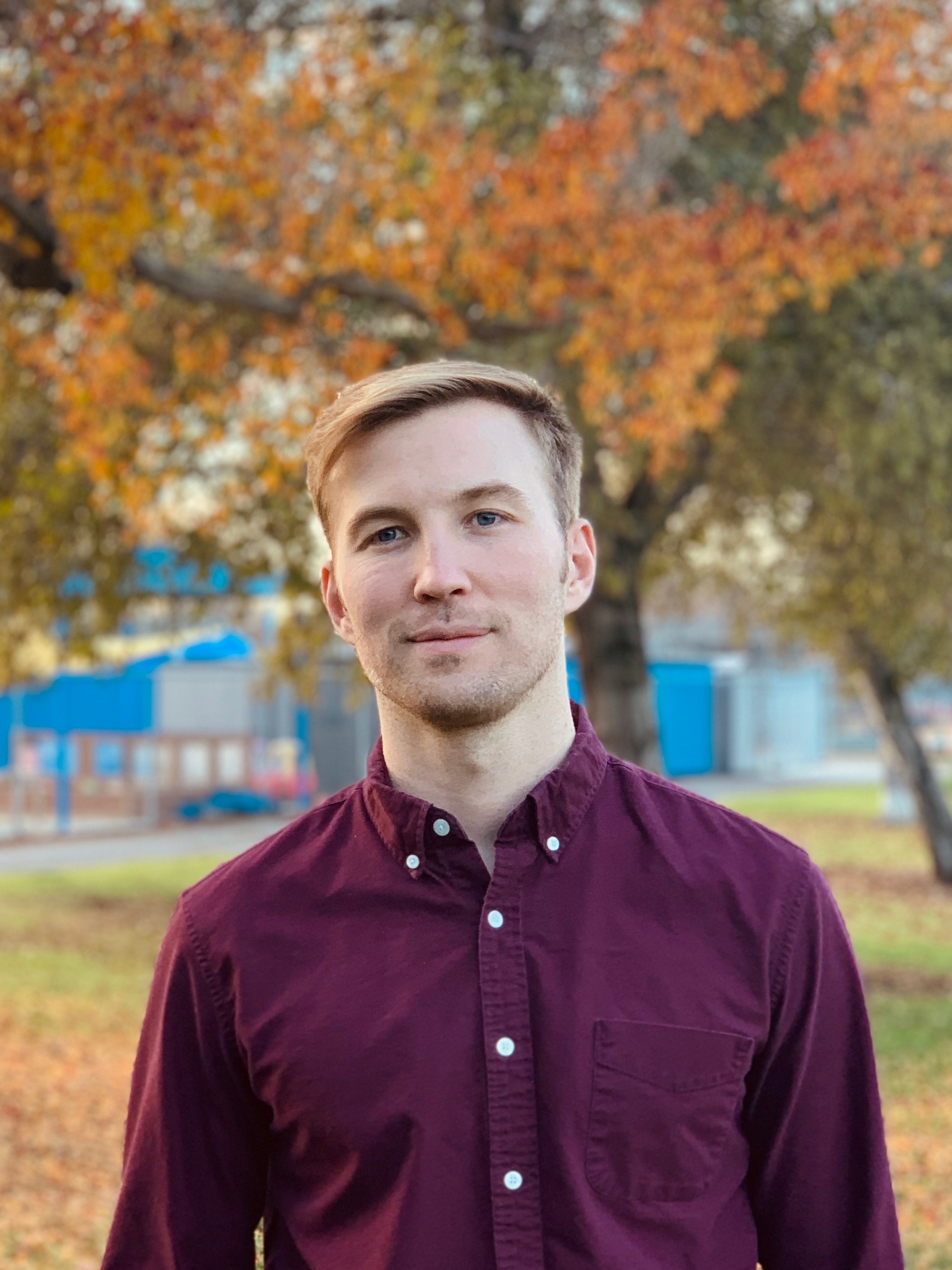
Assistant Professor of English Education, English Credential Program Director English
and Comparative Literature, Single Subject Credential Program
Email: [email protected]
Scott Jarvie is Assistant Professor of English Education in the Department of English and Comparative Literature, where he directs the English Credential Program. Scott joined the faculty at SJSU after receiving his Ph.D. in Curriculum, Instruction, and Teacher Education from Michigan State University. Prior to graduate school, Scott taught high school English in South Texas and in the city of Chicago. He is the author of Affect, Learning, and Teacher Education: Getting Stuck in Social Justice, written with Erica Colmenares, and his writing has been published in English Education, Changing English, the International Review of Qualitative Research, and Educational Theory, among other journals. He specializes in humanities and qualitative approaches to educational research. His interests include secondary English teaching, English teacher education, theories of affect, poetry, literature, arts-based pedagogies, pedagogical relationships, and the ethics of new educational technologies.
Wayne Jopanda, Ph.D.
Assistant Professor; Founder of the Brokada Filipino Men's Healing Collective; Founding
Associate Director of the Bulosan Center for Filipinx Studies (UC Davis);Asian American
Studies; Sociology and Interdisciplinary Social Sciences
Email: [email protected]
Phone number: 510-909-9698
Dr. Wayne Silao Jopanda is an Assistant Professor of Asian American Studies within the Department of Sociology and Interdisciplinary Social Sciences at San Jose State University. He received his PhD in Cultural Studies from the University of California, Davis, where he researched Filipino student experiences with burn out, labor trafficked Filipino teachers, and both cases' connections to the history of U.S. colonial education in the Philippines. Wayne's research also engages men of color mental health and liberated/healing masculinities, the impact of pop culture and anime on U.S. based men of color, the experiences of students of color and first generation college students in higher education, and the growing role of talk story/kuwentuhan in Ethnic Studies curriculum, spaces, and community organizing. Wayne is a co-founder and Associate Director of the Bulosan Center for Filipino Studies, a grassroots national community engaged Filipino Studies research center. Wayne is also the founder of the Brokada Filipino Men’s Healing Collective, a community driven bimonthly healing circle that is committed to holding space for mental health and healed liberated masculinity within communities of color. Wayne serves as an organizing committee member of the Critical Filipinx Studies Collective. Wayne is the Director of Scholarships for the Filipino Alumni Network of SJSU and serves as a selection committee member for the upcoming SJSU Filipino History Mural which aims to highlight the contributions of Filipino community organizers past and present. Wayne also serves on the Africana, Asian American, Chicano, & Native American Studies Center (AAACNA) committee and has organized the annual Asian American History Month Art Exhibit. Wayne has taught at Antioch University Seattle, UC Davis, UC Berkeley, St. Mary’s College, and De Anza College. Committed to community-engaged scholarship, Wayne’s work aims to support and uplift Critical Ethnic Studies through his community organizing and academic work.
Lara Kassab, Ed.D.
Associate Professor, Teacher Education
Sudha Krishnan, Ed.D.
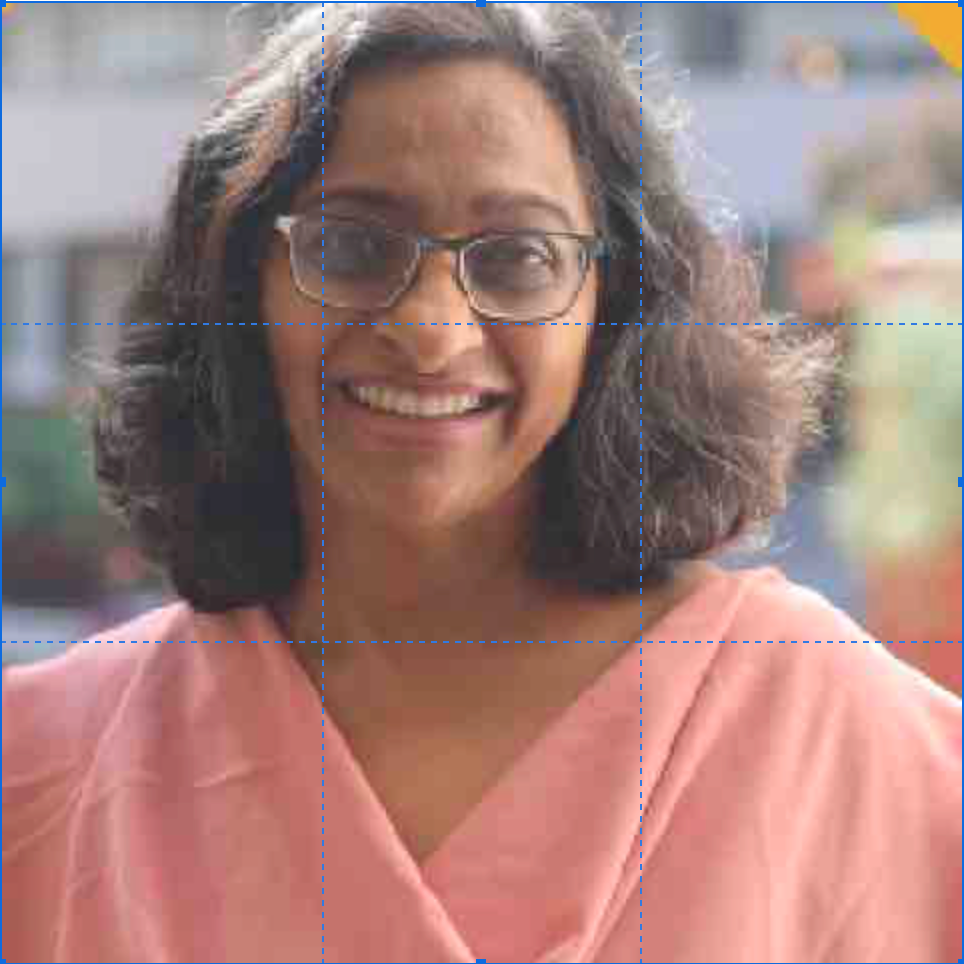
Assistant Professor, Special Education
Email: [email protected]
Phone Number: (408) 924-3681
Dr. Sudha Krishnan is an Assistant Professor of Special Education at San José State University, where she teaches and mentors teacher candidates in the Education Specialist Credential and Master’s programs. She also coordinates Project Mosaic, on a grant from U.S. Department of Education and serves on projects that strengthen university–district partnerships for inclusive education.
Her research focuses on inclusive education for students with extensive support needs, immigrant family experiences in special education, reframing deficit perceptions of disability, and equity issues in online education for students with extensive support needs. Recent studies have examined the challenges and opportunities of implementing meaningful inclusion, student voice in teaching practices, and tensions between parent advocacy and institutional practices. Dr. Krishnan’s work draws on qualitative methodologies, particularly grounded theory.
Her scholarship has been published in leading journals like Remedial and Special Education and Research and Practice for Persons with Severe Disabilities. She has contributed book reviews and professional resources bridging research and practice.
She is an active member of professional organizations, regularly presents at national and international conferences, and is recognized for her community-engaged scholarship and advocacy for students with disabilities. Her philosophy of leadership emphasizes collaboration, culturally responsive practice, and building sustainable partnerships that empower educators, families, and students.
Saili Kulkarni, Ph.D.
Associate Professor, Special Education
Jason Laker, Ph.D.
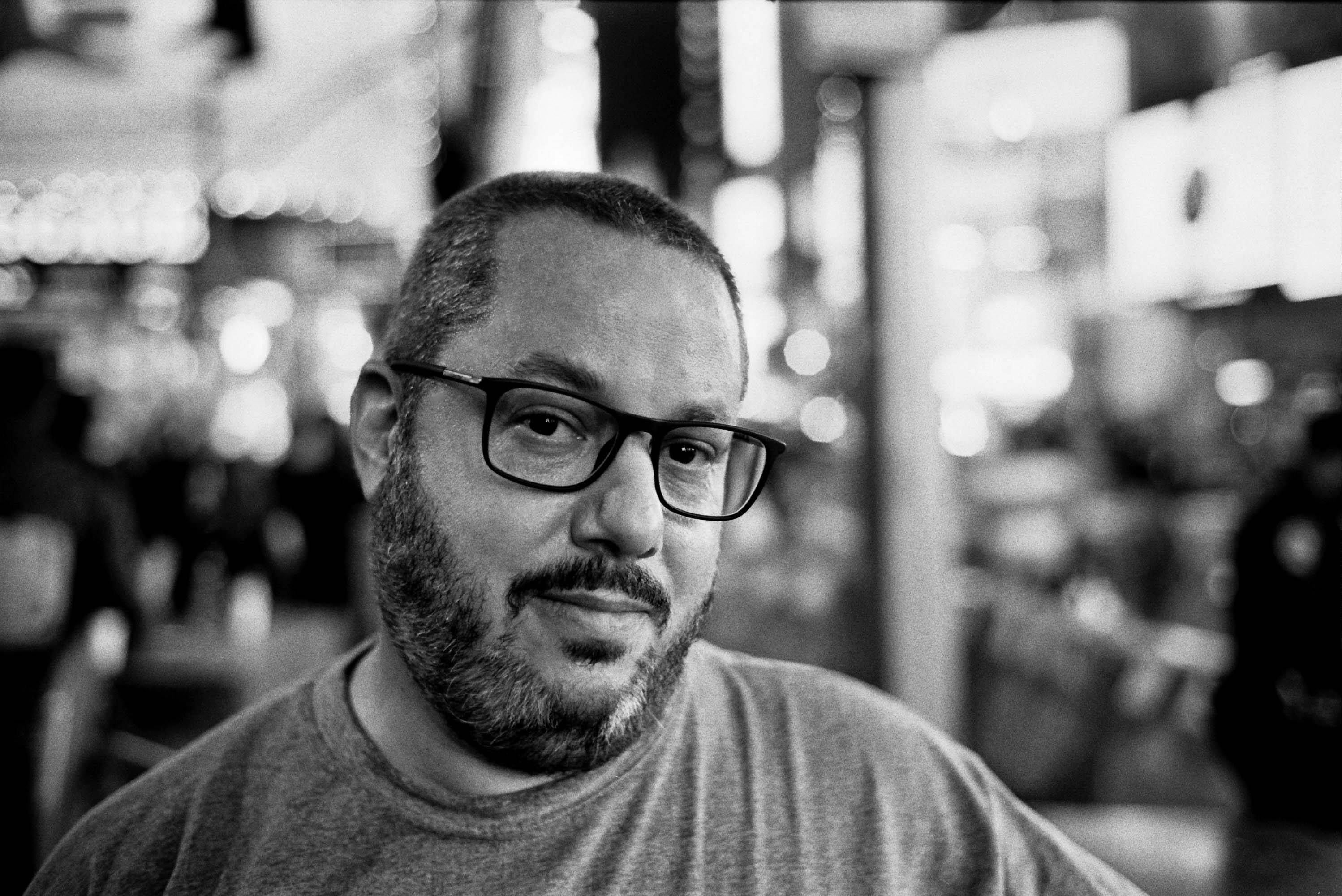
Professor of Higher Education, Student Affairs, and Community Development & Chair,
Department of Counselor Education
Email: [email protected]
Dr. Jason Laker is a Professor of Higher Education, Student Affairs, and Community Development and Chair in the Department of Counselor Education; and former Vice President for Student Affairs here at San José State University (SJSU) in California. His current research focuses on consent communication among college students and prevention of gender-based sexual violence within higher education. Jason previously served as Associate VP & Dean of Student Affairs, Fellow in the Centre for the Study of Democracy, and on the Gender Studies Faculty at Queen’s University in Canada. He holds a Ph.D. from the Center for the Study of Higher Education at the University of Arizona, where he also served as Director of Business Programs and Workforce Development. Dr. Laker also holds a Master of Arts degree in Community Counseling. His international activities include engagements as board member, visiting faculty, consultant, or speaker, particularly in Europe, and he is one of only 19 individuals worldwide (four in the United States) inducted as an Associate Member of the International Association of Universities. His scholarly work includes five texts, two focused on men’s and masculinities studies, two on citizenship and democratic education, and one reporting on the current consent research. Jason also serves as International Series Editor for Palgrave (UK) Studies on Global Citizenship Education and Democracy; and Editor-in-Chief for the Journal of Men’s Studies.
María Ledesma, Ph.D.
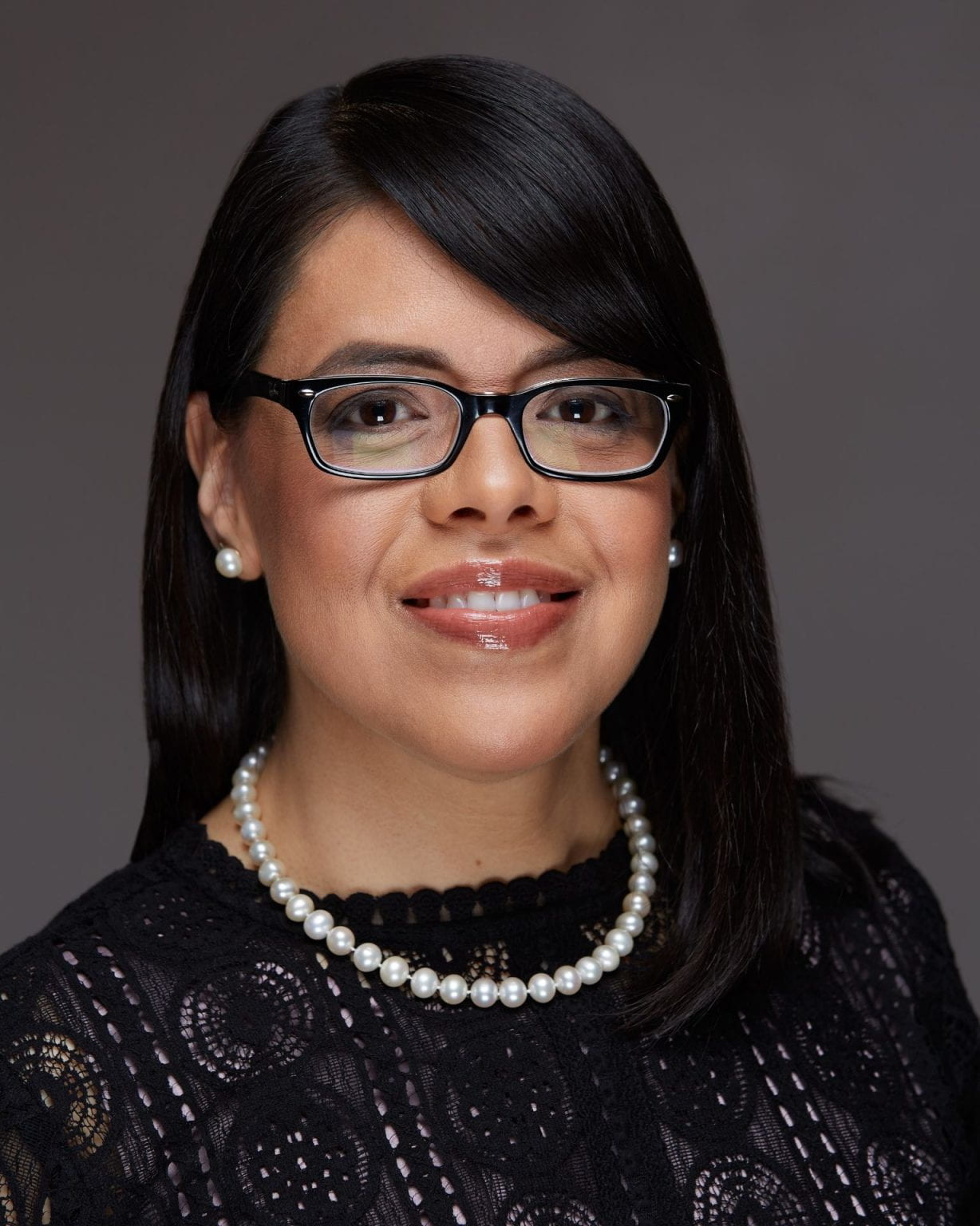
Department Chair & Professor, Educational Leadership
Email: [email protected]
Dr. María C. Ledesma grew up in Oakland, California. As a first-generation college student, María earned a B.A. from UC Berkeley, a master’s degree from Harvard’s Graduate School of Education, and a Ph.D. in education from UCLA. She has previous experience as an undergraduate admissions reader for her undergraduate alma mater, UC Berkeley, and sat as the graduate student representative for the University of California’s faculty senate committee on undergraduate admissions—The Board of Admissions and Relations with Schools. As a doctoral student María was selected to sit as the 32nd Student Regent for the University of California, the first Latina to hold this post. Her research interests include equity oriented critical policy analysis, including contextualizing and historicizing the history and application of race-conscious social policy in higher education and the examination of leadership for social justice. She is also interested in exploring the experiences of faculty of color who identify as first-generation. Her work has appeared in the Association of Mexican American Educators Journal, Equity and Excellence in Education, Review of Higher Education, and Qualitative Inquiry.
Cara Maffini, Ph.D.
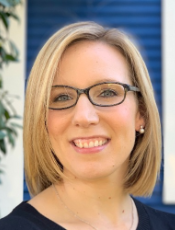
Professor, Child and Adolescent Development; Director, Healthy Development Community
Clinic
Email: [email protected]
Phone Number: (408) 924-3629
Dr. Cara S. Maffini is a Professor in the Department of Child & Adolescent Development.
She is also co-Founder and Director of SJSU's Healthy Development Community Clinic (HDCC), which is a pioneering model of student training through community engagement, promoting healthy development, mental health, and health equity for children, youth, and families across Santa Clara County.
Dr. Maffini is a collaborative scholar who partners with colleagues across education and health-related fields. She is committed to using research as a tool for change, translating findings into community programs that promote wellness for children, youth, and families. Her scholarship focuses on the intersections of culture, mental health, and trauma, particularly among adolescents and emerging adults in underserved communities. She examines socioemotional, cultural, and developmental factors that shape risk and resilience, employing both quantitative and qualitative methods. If given a choice, her favorite methods are: logistic regression (quantitative) and grounded theory (qualitative). Dr. Maffini has secured competitive grants from local, state, and federal agencies, as well as foundations and philanthropic organizations, to support her research and community-based initiatives.
Robert Marx, Ph.D.
Associate Professor, Director - Queer Hope Institute , Child and Adolescent Development
Email: [email protected]
Phone number : (650) 564-4611
Dr. Robert Marx (they/he) is an Associate Professor of Child and Adolescent Development. Dr. Marx’s primary research interests focus on the healthy development of queer and trans youth, specifically focused on the family, school, and community supports that help them thrive. An interdisciplinary scholar, Dr. Marx’s community-engaged research and practice focus on reframing dominant visions of queer young people, so that they are no longer viewed as deviant, damaged, or at-risk, but rather as the gifted, complex people they are. Dr. Marx deploys a variety of qualitative and quantitative research methods, including critical youth participatory action research and meta-analysis, to better understand and promote marginalized youth’s development. As a former high school English teacher, they approach this work from the intersection of educational studies, developmental psychology, and critical pedagogy, and their work encourages young people to see themselves as producers of knowledge and as change agents.
Dr. Marx earned a BA in English, Spanish, and Linguistic Anthropology from Brandeis University, a Masters of Teaching English from Boston University, and a PhD in Community Research and Action from the Peabody School of Education at Vanderbilt University. They are the founding director of the Queer Hope Institute, a university-community bridge that works to ensure that queer and trans youth have the bright, beautiful futures that they deserve. Their work has been supported by the Spencer Foundation, the Institute of Education Sciences, and state- and local public education sources. They received the Community Advocacy Award for Santa Clara County for their work supporting queer and trans educators and counselors.
Zachary McNiece, Ph.D.
Assistant Professor, Counselor Education
Ellen Middaugh, Ph.D.
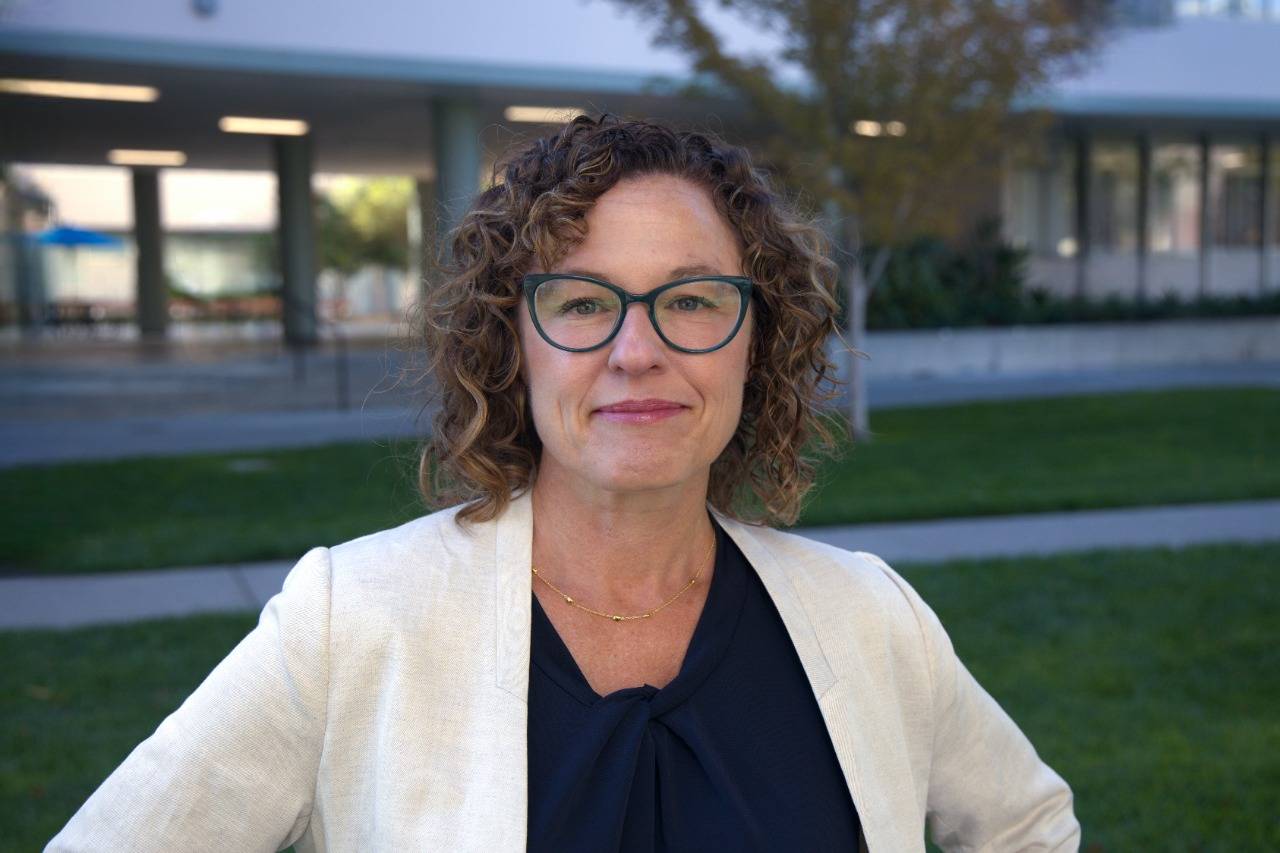
Associate Professor, Child & Adolescent Development
Melody Moh, Ph.D.
Professor, Computer Science
Email: [email protected]
Phone number: (408) 924-5088
Melody Moh is a professor and former chair (Summer 2019 - Summer 2024) of the Dept of Computer Science at San Jose State University. She is currently the PI of an Implementation Grant from the Center for Inclusive Computing (Oct 2021 - Oct 2026), the PI of the WITH Cyber project for development future workforce in Cybersecurity and AI in California (2023-2026), and the PI for the SJSU Instruction Hub of Break Through Tech (2025-26). Passionate about improving the diversity of computing education and cyber workforce, she recently led the CS Dept to develop new several BS and MS degree programs including BS in Data Science, and both BS and MS in CS + Linguistics and CS + Geology, each of which is the first of its kind in CSU. She has received over 4M grants in research and education, and has over 250 refereed publications, including several best-paper awards.
Nikos Mourtos, Ph.D.

Department Chair & Professor, Aerospace Engineering
email: [email protected]
phone number: (408) 924-3867
Nikos J. Mourtos is a professor and the Chair of the Aerospace Engineering Department at SJSU. He received his Ph.D. degree in Aeronautical and Astronautical Engineering from Stanford University. He has developed and taught more than 20 courses in diverse subjects spanning from aerodynamics and aircraft design to leadership and complexity and systems thinking. His research interests encompass learning theories and innovative pedagogies, course design and assessment, faculty development, complexity and systems thinking.
Dr. Mourtos has served as the Faculty Instructional Development Coordinator for the College of Engineering (1996-2002), a Faculty-in-Residence for Innovative Pedagogy (1998-2002) and the Assistant Director for the SJSU Center for Faculty Development and Support (2006-2008). He has published extensively on engineering education topics such as active, cooperative, problem-based and service learning, teaching and learning styles, teaching and assessing problem solving and design skills, faculty development, and program assessment. He has conducted more than 100 faculty workshops at SJSU, in the US, and around the world with a focus on course design and in particular how to teach and assess 21st century skills.
Eduardo Muñoz-Muñoz, Ph.D.
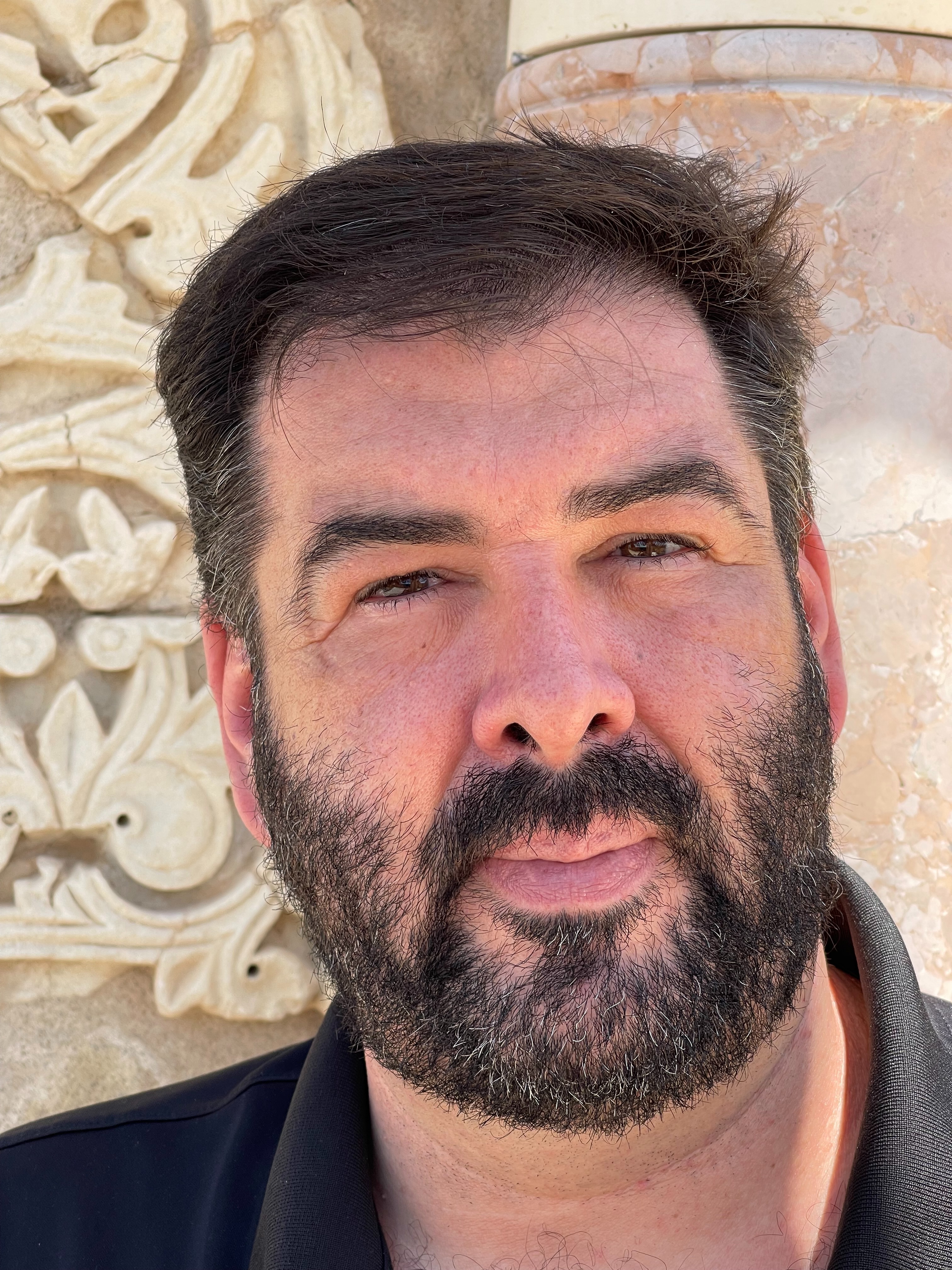
Associate Professor, Teacher Education
Email: [email protected]
Phone: (408) 924-3771
Dr. Eduardo R. Muñoz-Muñoz is an Associate Professor in the Teacher Education Department
at San José State University, where he serves as faculty in the Critical Bilingual
Authorization Program (CBAP). He earned his Ph.D. in 2018 from Stanford University
with a dual specialization in Race, Inequality and Language in Education and Sociology
of Education, where he was awarded the Diversifying Academia, Recruiting Excellence
(DARE) Fellowship. His dissertation, "Destandardizing the standard(s): Ideological
and implementational spaces in preservice teacher education," received the 2020 Dissertation
Award from the Second Language Learning Special Interest Group of the American Educational
Research Association (AERA).
Prior to his academic career, Dr. Muñoz-Muñoz served as a principal at International
Community School in Oakland Unified School District, an English Learner Network Coach,
BTSA teacher induction coach, and bilingual elementary teacher. He also taught secondary
English in Spanish public high schools for over a decade.
Dr. Muñoz-Muñoz has three intersecting areas of expertise: (1) heteroglossic and translanguaging
pedagogies in bilingual and multilingual education; (2) critical approaches to bilingual
teacher preparation, development, and retention; and (3) language ideologies and linguistic
justice in educational policy and practice.
His scholarship has appeared in journals including Educational Policy, Bilingual Research
Journal, Journal of Latinos in Education, Association of Mexican American Educators
Journal, and Language in Education. He has authored book chapters in The Handbook
of Dual Language Bilingual Education (Routledge, 2024), Multilingual Schools and Communities
(Multilingual Matters, 2024), and Bilingual Special Education for the 21st Century
(IGI Global, 2022). He has two forthcoming books under contract: Heteroglossic Pedagogies
and the Transformation of US Bilingual Schools (Brill, 2027) and Educación Bilingüe
en España y EE.UU.: Un Estudio Comparativo (Tirant lo Blanch, 2027).
Dr. Muñoz-Muñoz serves as Co-Chair of AERA Division B, Section 10, and as a board
member of the California Council on Teacher Education (CCTE) and Co-Chair of the Spring
Policy Action Network (SPAN) Conference. He served as President of the California
Association for Bilingual Teacher Educators (CABTE) from 2021 to 2024. He has provided
technical support to the California Commission on Teacher Credentialing (CTC) for
state accreditation and served on state committees including the Committee to Revise
the Bilingual Authorization Standards and the State Superintendent's Dual Language
Instruction Task Force.
His recent scholarship and advocacy work focuses on advancing linguistic justice in
California's teaching standards, developing sustainable bilingual teacher pipelines,
and reimagining bilingual education through critical translingual perspectives. He
is Principal Investigator on the Silver Giving Foundation grant "Halfway to 2030:
CA Bilingual Teacher Preparation Pipeline Needs and Potentialities" and particiaptes
on a Stanford University Ethnic Studies grant exploring intersections between heritage
Spanish and ethnic studies.
Rachel O'Malley, Ph.D.
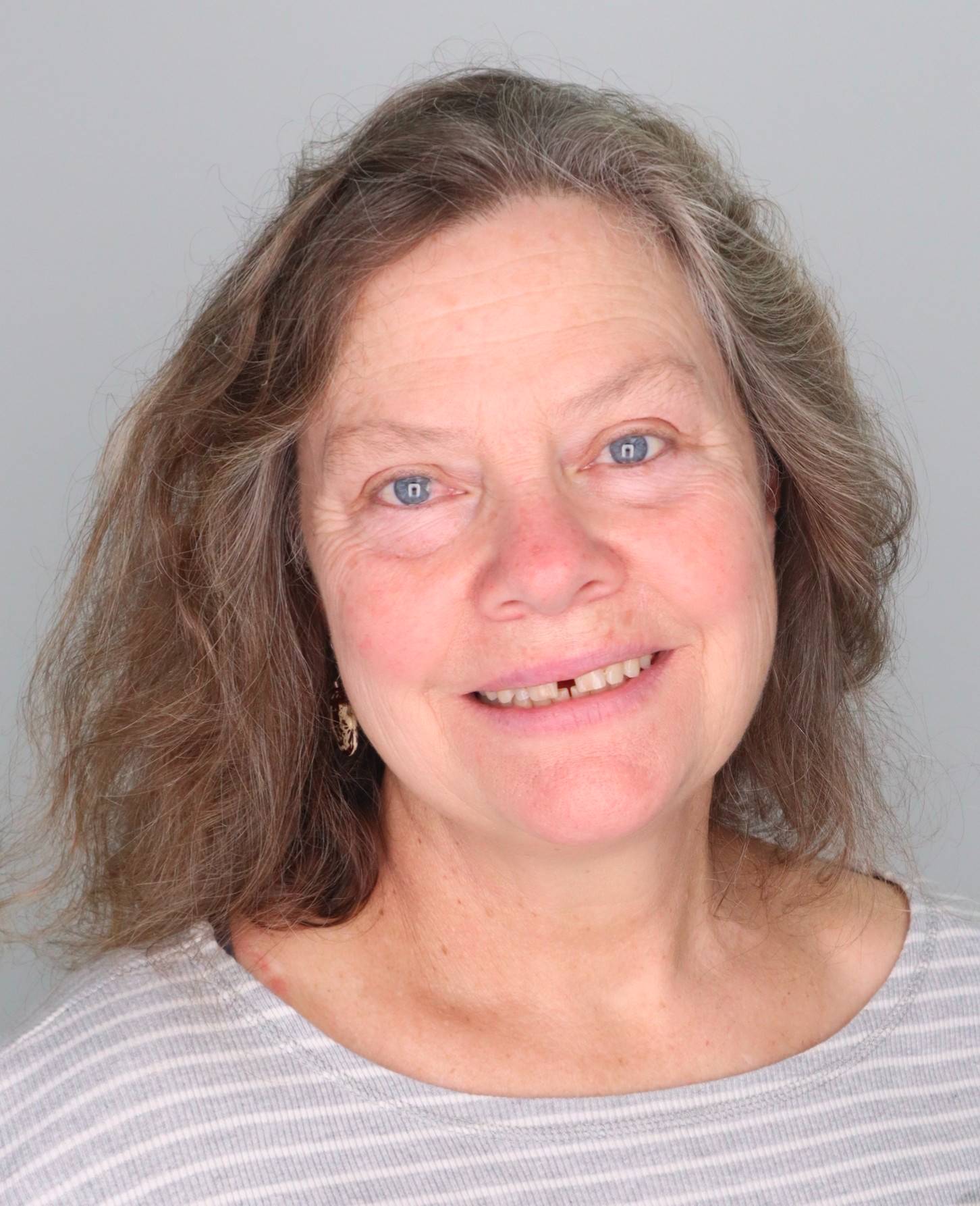
Professor, Environmental Studies
Email: [email protected]
Phone number: (408) 924 2985
Dr. Rachel E. O’Malley, Professor of Environmental Studies and Core Faculty for Educational Leadership, conducts and supervises research on a wide variety of interdisciplinary environmental and educational problems. Building on her long-term research in sustainable agriculture in California, Dr. O’Malley advises Education Doctorate and Master of Science students using both quantitative and qualitative natural and social science methodologies to conduct research on agricultural education leadership, environmental justice in agriculture, pollinator conservation, insect community dynamics and soil microbiology and runoff prevention in farm fields in California, as well as social, economic and ecological impacts of food production in Latin America, where she has spent several years conducting research. Dr. O’Malley mentors research on California wildlands as well, ranging from the transformational effects of backpacking experiences on a diversity of participants, to understanding the ecology, conservation, and restoration needs of rare and declining plant, insect, mammal and amphibian species in the greater San Francisco Bay Area. Finally, Dr. O’Malley supervises research related to urban ecosystems, including environmental justice and impact assessment policy in California and internationally, urban food systems and garden access, urban coastal watershed and riparian mitigation, monitoring and restoration, and greenbelt urban trail use and invasive species.
With an undergraduate degree in Biology from Swarthmore College (’86), a Ph.D. in Biology from UC Santa Cruz (’97), and over 25 years teaching at SJSU, Dr. O’Malley has mentored over 50 completed graduate-level theses, and she currently chairs four Doctoral committees. She has served two terms as Department Chair, she’s been an elected officer of the faculty union, and she contributes to governance of the university through many university committees, and she founded and still runs the sustainable agriculture teaching garden on Campus at San José State University. Her recent publications have appeared in The Journal of Wildlife Management and Water Policy, and she is currently revising work for Herpetological Conservation and Biology. Dr. O’Malley is fluent in English and Spanish, and proficient in French.
Most importantly, Dr. O’Malley strives to foster and encourage the idealism and excitement about learning, questioning and participating that forms the core of higher education for environmental and social action.
Luis Poza, Ph.D.
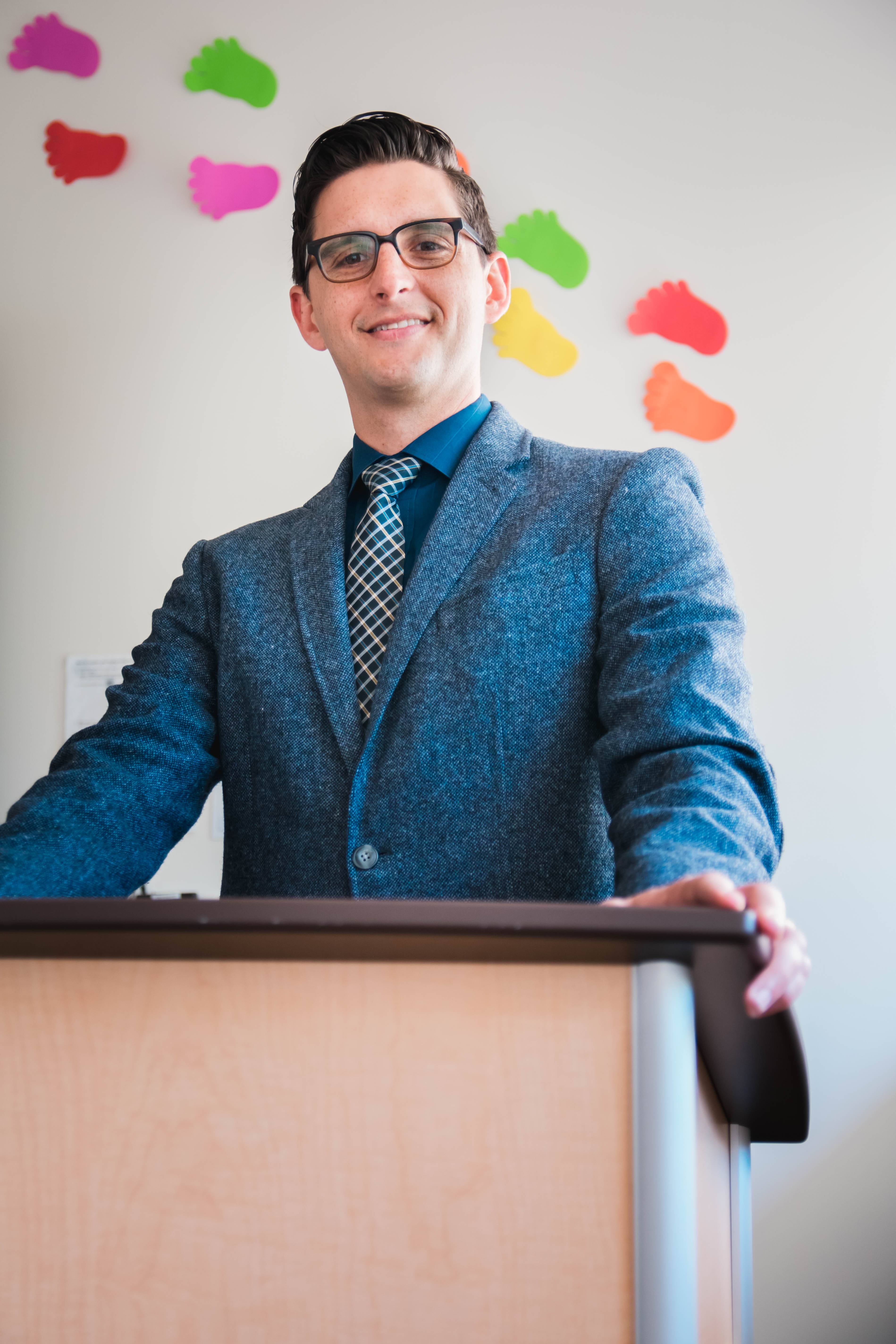
Associate Professor, Teacher Education
Email: [email protected]
Phone Number : (408) 924-3646
Luis E. Poza is an Associate Professor of Teacher Education in the Connie L. Lurie College of Education and Director of the Institute for Emancipatory Education at San José State University. Among his duties as IEE Director, Luis coordinates the Ethnic Studies Teacher Residency Program in which pre-service teachers learn ethnic studies as embodied practice, and the Male Educators of Color Initiative that provides funding and mentorship for fellows in the program to foster a diverse teacher workforce committed to humanizing pedagogies. Luis’s research examines how ideologies of language, race, class, and nation are embedded and enacted in educational policy and practice for bilingual learners, and his publications appear in Harvard Educational Review, Journal of Education Policy, Language Policy, Bilingual Research Journal, and Whittier Law Review, among other venues. Luis teaches about transformative multicultural education, bilingual education, and the roles of language and education in human rights frameworks.
Wendy Quach, Ph.D.
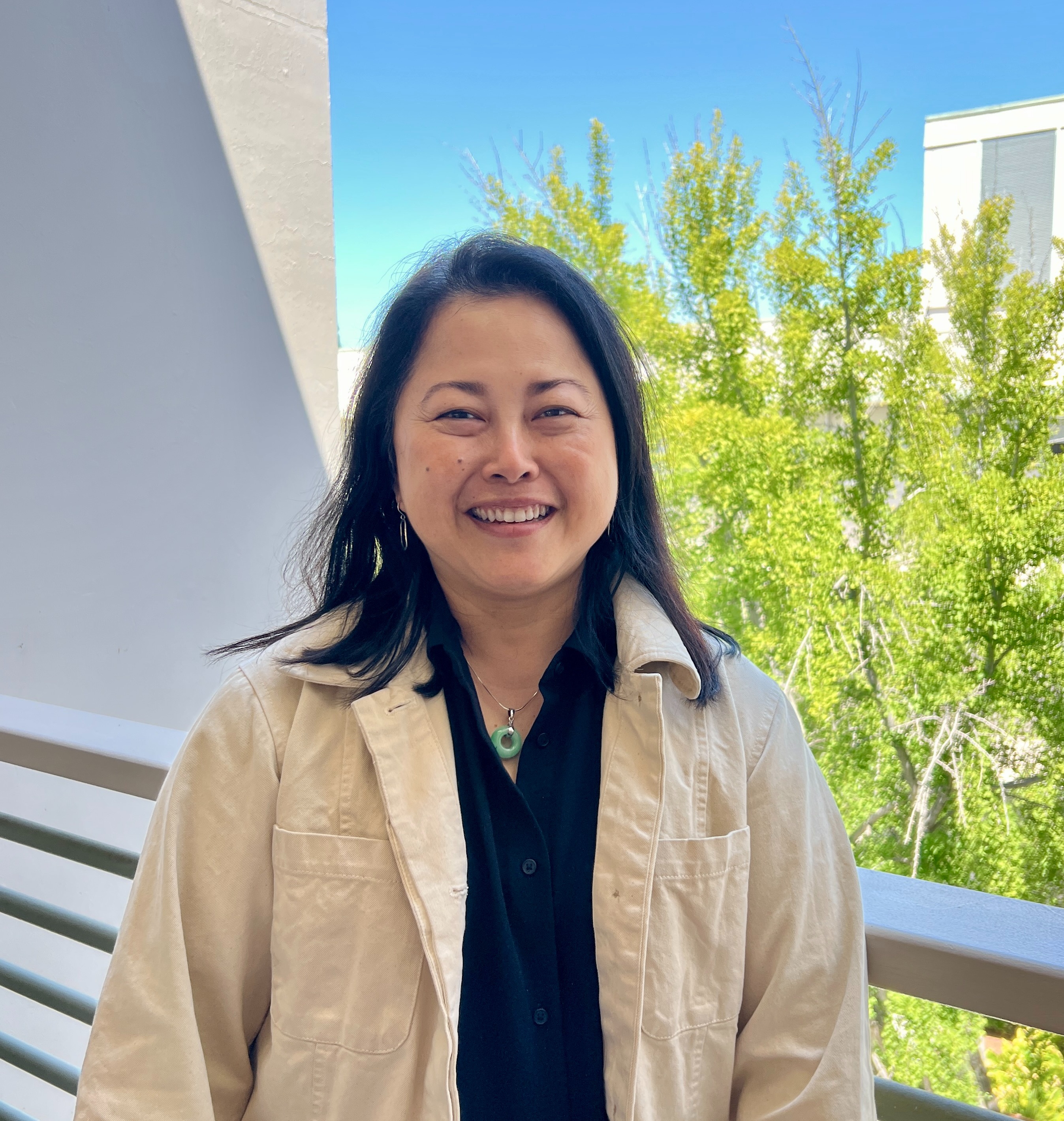
Professor and Program Director, SPEAKS Communicative Disorders & Sciences
Email: [email protected]
Dr. Wendy Quach is a Professor in the Department of Communicative Disorders & Sciences at San José State University, where she serves as Program Director for the online MS–SLP program (SPEAKS) and Director of the Cilker Augmentative and Alternative Communication (AAC) Lab. In these leadership roles, she oversees academic programming, clinical training, faculty recruitment, and strategic research initiatives. Her scholarship centers on AAC, cultural and linguistic diversity in service delivery, and interprofessional collaboration, with current projects focused on culturally responsive AAC assessment and intervention, emergency preparedness for AAC users, and the development of low-tech AAC systems for culturally and linguistically diverse communities. She has also led student training initiatives through immersive AAC camps and 3D printing for interprofessional education. Methodologically, Dr. Quach employs qualitative, mixed-methods, and participatory approaches that foreground stakeholder perspectives—particularly those of marginalized AAC users.
Her work appears in peer-reviewed outlets including Augmentative and Alternative Communication, American Journal of Speech-Language Pathology, Communication Disorders Quarterly, and Language, Speech, and Hearing Services in Schools, and she co-authored a chapter in Augmentative and Alternative Communication: An Interactive Clinical Casebook. Dr. Quach holds a Ph.D. in Special Education and Communication Disorders from the University of Nebraska–Lincoln, as well as an M.S. in Speech-Language Pathology and a B.A. in Linguistics from the University of Alberta. Internationally, she has served as a Senior Speech and Language Therapist in London and Essex, UK, led AAC workshops in Guam, held adjunct appointments at the University of Alberta, and served as a clinical educator at the University of Nebraska–Lincoln. Her professional leadership includes service as President and Past President of the United States Society of Augmentative and Alternative Communication, site visitor for the Council on Academic Accreditation, consulting editor for the Augmentative and Alternative Communication journal, and reviewer for ASHA programs and federal grant agencies. She has secured more than $5 million in external funding—including competitive awards from the U.S. Department of Education’s Office of Special Education and Rehabilitative Services and the National Institutes of Health—for projects such as Project Tapestry, Project EPICS, Project AACES, and Project INCLUDE. Honors include the California Speech-Language-Hearing Association Outstanding Achievement Award (2014) and multiple university awards recognizing mentorship and research excellence. Fluent in English and Cantonese, with basic proficiency in French, Dr. Quach is deeply committed to inclusive, culturally sustaining practices that shape her teaching, research, and clinical service.
Colette Rabin, Ph.D.
Professor, Teacher Education
Kathrn Ribay, Ph.D.
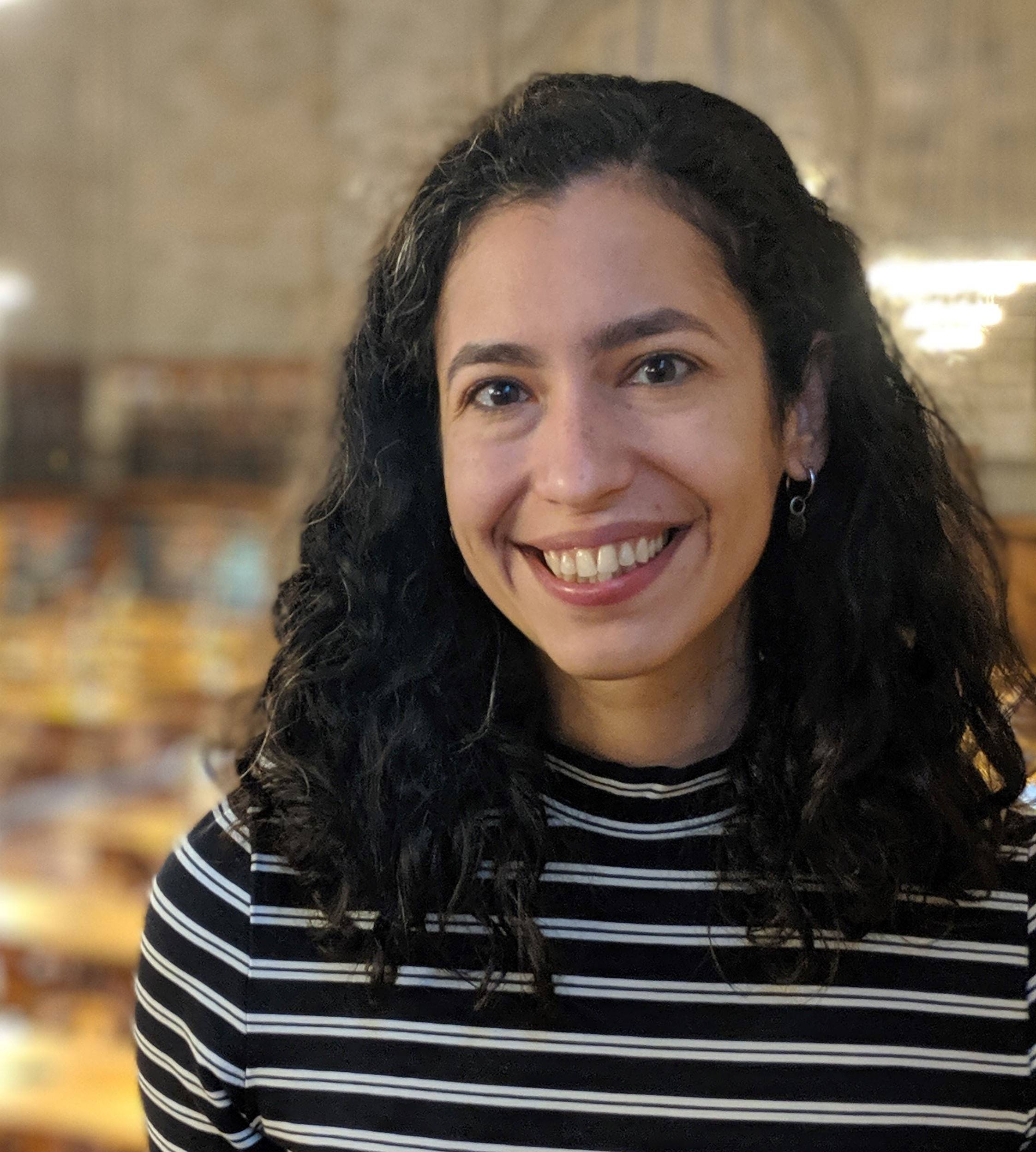
Assistant Professsor, Teacher Education Department
Email: [email protected]
Dr. Kathryn Ribay is an Assistant Professor in the Department of Teacher Education at San Jose State University. Dr. Ribay began her career as a chemistry teacher in public high schools in New Jersey and earned a Ph.D. in Science Education at Stanford University. Her research interests lie at the intersection of science instruction, teacher education, and justice-centered pedagogy. Through research and professional development, she explores how educators can work collectively to imagine justice-centered and linguistically-sustaining approaches to science teaching and then navigate the practical challenges of enacting those ideas in their classrooms. Dr. Ribay also holds an Ed.M. in School Leadership from the Harvard Graduate School of Education, an M.S. in Chemistry from Rutgers-Camden University, and a B.A. in Chemistry from Harvard University.
Navrati Saxena, Ph.D.
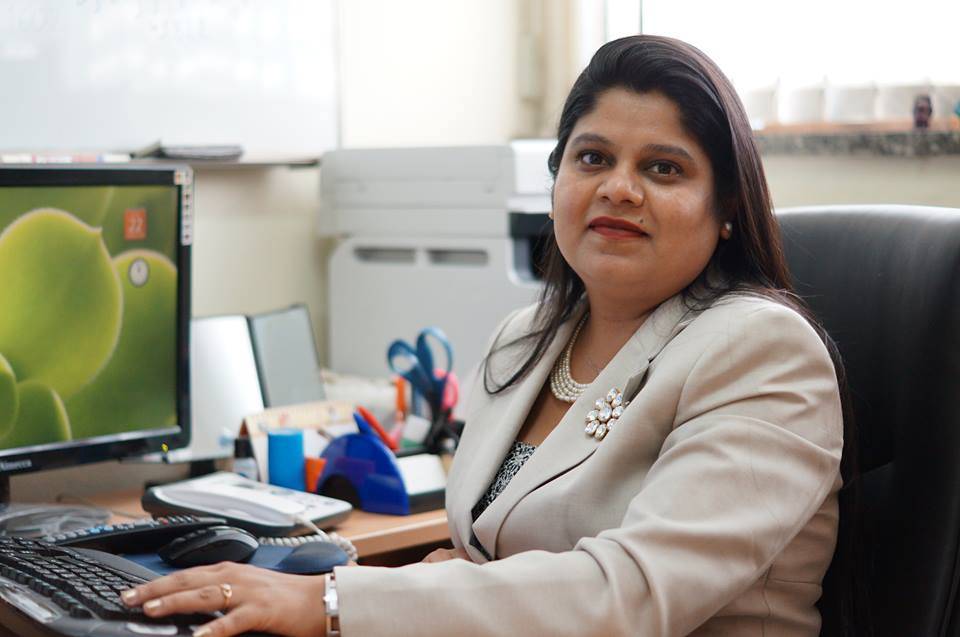
Associate Professor, Department of Computer Science, College of Science. Core faculty:
Ed.D. Educational Leadership Program. Project Engineering Success Mentor. Undergraduate
Research Opportunity Program (UROP), Mentor. Cal-Bridge faculty mentor.
Email: [email protected]
Phone Number : 6692729154
Navrati Saxena works as an Associate Professor in the Computer Science Department, San Jose State University. She previously worked as an Associate Professor at the Sungkyunkwan University, South Korea; Lecturer, Amity University, India, and as a visiting researcher in the Computer Science and Engineering Department of the University of Texas at Arlington. She completed her PhD degree from the Department of Information and Telecommunication, University of Trento, Italy. Her prime research interests involve 6G and beyond, vehicular, satellite networks, and healthcare. She has co-authored one book (published by Taylor and Francis, USA) and published more than 100 international journals and conferences.
My Research Interests
As a dedicated researcher and educator, I work at the intersection of Artificial Intelligence (AI), Machine Learning (ML), and their transformative applications across healthcare, wireless networks, and beyond. My research is driven by a passion for leveraging AI/ML to solve complex, real-world challenges—from enhancing healthcare outcomes to optimizing wireless networks and communication systems.
In healthcare, my focus centers on developing predictive models and simulation environments that support disease progression analysis, personalized treatment approaches.
My research extends to wireless networks, where I explore the application of AI/ML to improve wireless/cellular/vehicular, satellite, 6G and beyond networks. I am passionate about identifying innovative ways that AI can drive network intelligence and enable seamless connectivity.
In addition to my research pursuits, I am a core faculty member in the Ed.D. program, where I lead projects focused on “AI and Education.” I work alongside colleagues and students to explore how AI can be harnessed to personalize learning experiences, optimize educational outcomes especially for the underrepresented. I am deeply committed to advancing the responsible and ethical integration of AI in educational contexts.
Lisa Simpson, Ph.D.
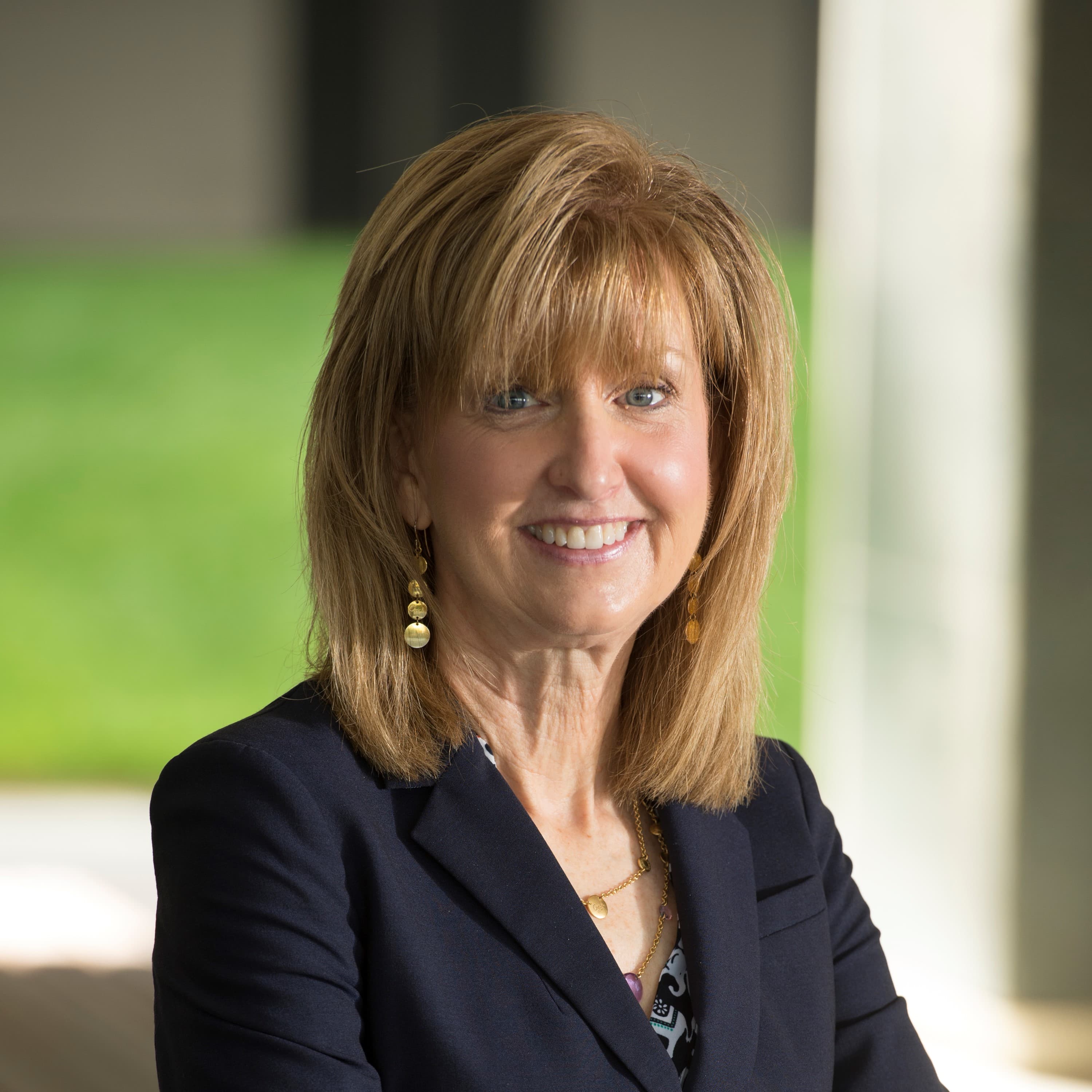
Department Chair & Associate Professor, Special Education
Emily Slusser, Ph.D.
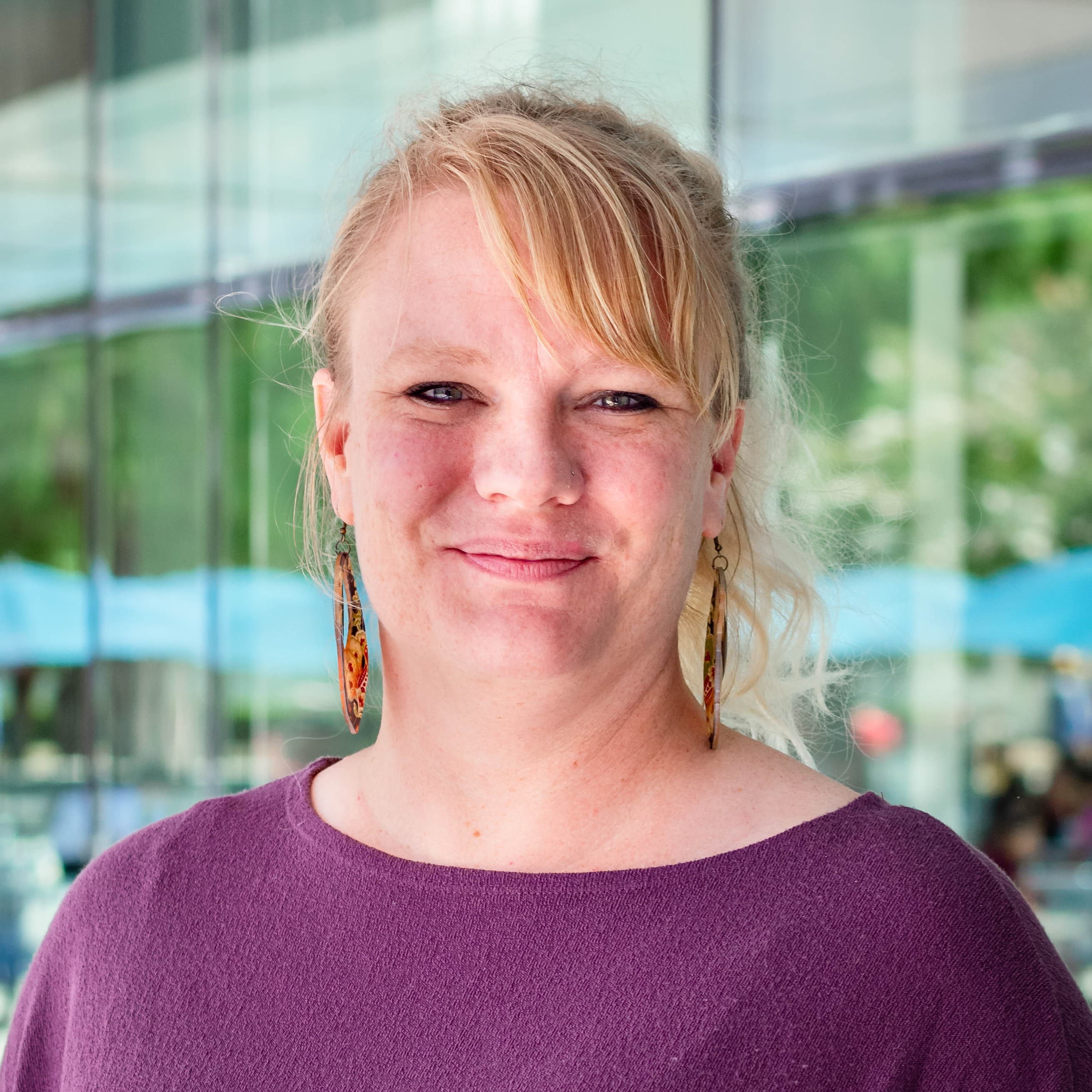
Professor, Child & Adolescent Development
Email: [email protected]
Emily Slusser began her career in child development as the program coordinator for an early education program, where she developed intervention strategies for preschool children with limited educational resources. Since that time, Dr. Slusser has established a research program that explores children’s early cognitive representations of number and the later development of symbolic math concepts.
Dr. Slusser’s research focuses on early childhood cognition and development, particularly the conceptual foundations of math and number skills. Her work includes longitudinal studies of children’s understanding of natural number concepts and the development of comprehensive models of early math achievement. She is particularly interested in learning how cognitive representational resources drive language learning and how language, in turn, supports further conceptual development.
She is the co-founder of the Early Childhood Institute (ECI) at San José State University and serves as a member of its leadership team. Since its launch in 2019, ECI has made notable contributions to the field of early childhood care and education through research, training, and advocacy. Over the next few years, Dr. Slusser aims to expand her interdisciplinary research program to explore best practices in early education and intervention.
Grinell Smith, Ph.D.
Professor, Teacher Education
Megan Thiele, Ph.D.
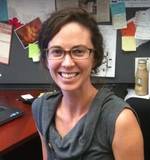
Associate Professor, Sociology & Interdisciplinary Social Sciences
Email: [email protected]
Kim Tsai, Ph.D.
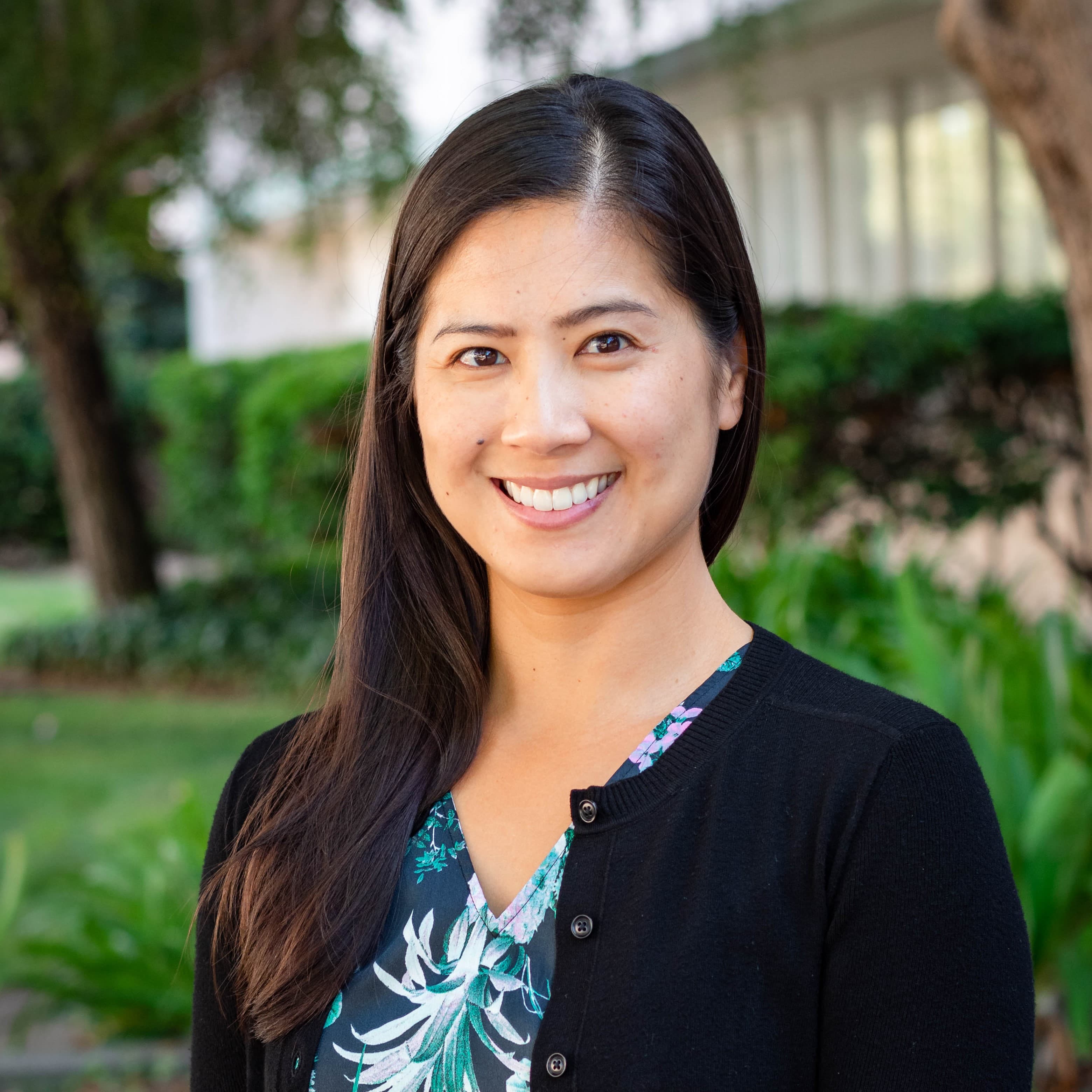
Associate Professor, Child & Adolescent Development
Email: [email protected]
Phone number: 408-924-3741
My program of research centers on family influences on adolescent psychosocial adjustment and health. My two intersecting areas of research include (1) examining how cultural values contribute uniquely to family dynamics for adolescents from ethnic minority and immigrant families and (2) investigating cultural and familial factors that impact adolescent emotional well-being and health, particularly their sleep. To address my research aims, I utilize survey, daily experience sampling and longitudinal designs in my studies with adolescents and their parents from diverse backgrounds.
Tammie Visintainer, Ph.D.
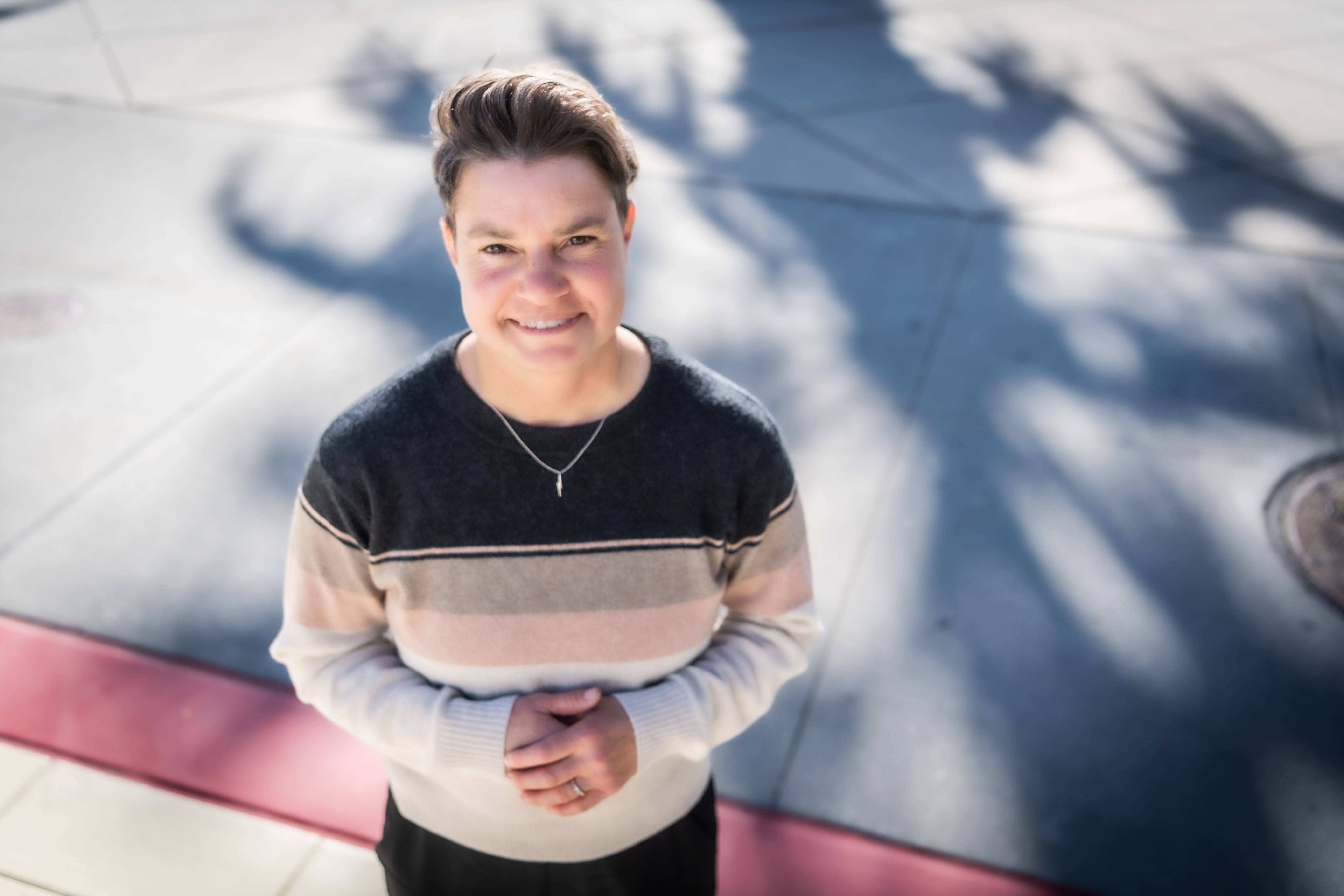
associate professor science education , Teacher Education and Science Education
Email: [email protected]
Phone Number: 408-924-3778
I am an Associate Professor of Science/Teacher Education at San José State University where I hold a joint appointment between the Colleges of Education (Teacher Education) and Science (Science Education). I hold a Ph.D. in STEM Education from the University of California, Berkeley. My research explores intersections of history, race, place, and power in science education. I build from sociocultural and critical perspectives of race, learning, and identity construction in science to examine how learning environments are embedded in broad systems of power and privilege with implications for policy and practice. I seek to broaden access and opportunities for participation in science through inclusive, community-engaged scholarship. I employ a design-based research approach and utilize primarily qualitative methods (e.g., interviews) with some quantitative data sources (e.g., surveys). Classrooms, teachers, and students as the units of analysis. My research program is currently focused on climate justice education. I explore how engaging teachers and students in climate justice action research (CJAR), a novel approach to community-based science in the classroom, supports learning, identity construction, and creates opportunities for community reimagining and sustainable future remaking. The goal of this research is to support science teaching and learning through youth-centered pedagogies of hope in order to support teachers and students as community-engaged change agents. To support this work, I was awarded a five-year National Science Foundation (NSF) Early Faculty Career Development Program (CAREER) grant. Teachers participate in a year-long professional learning experience and students identify local issues related to urban and extreme heat, conduct investigations, share their findings through arts-based community stories, and advocate for change. Unfortunately, my NSF CAREER grant was terminated by the federal government on 4/18/25. However, I have obtained bridge funding and the project continues with new funding sources. I’m always looking for new students to join my exciting research team! You can find recent publications in the Journal of Research in Science Teaching.
David Whitenack, Ph.D.
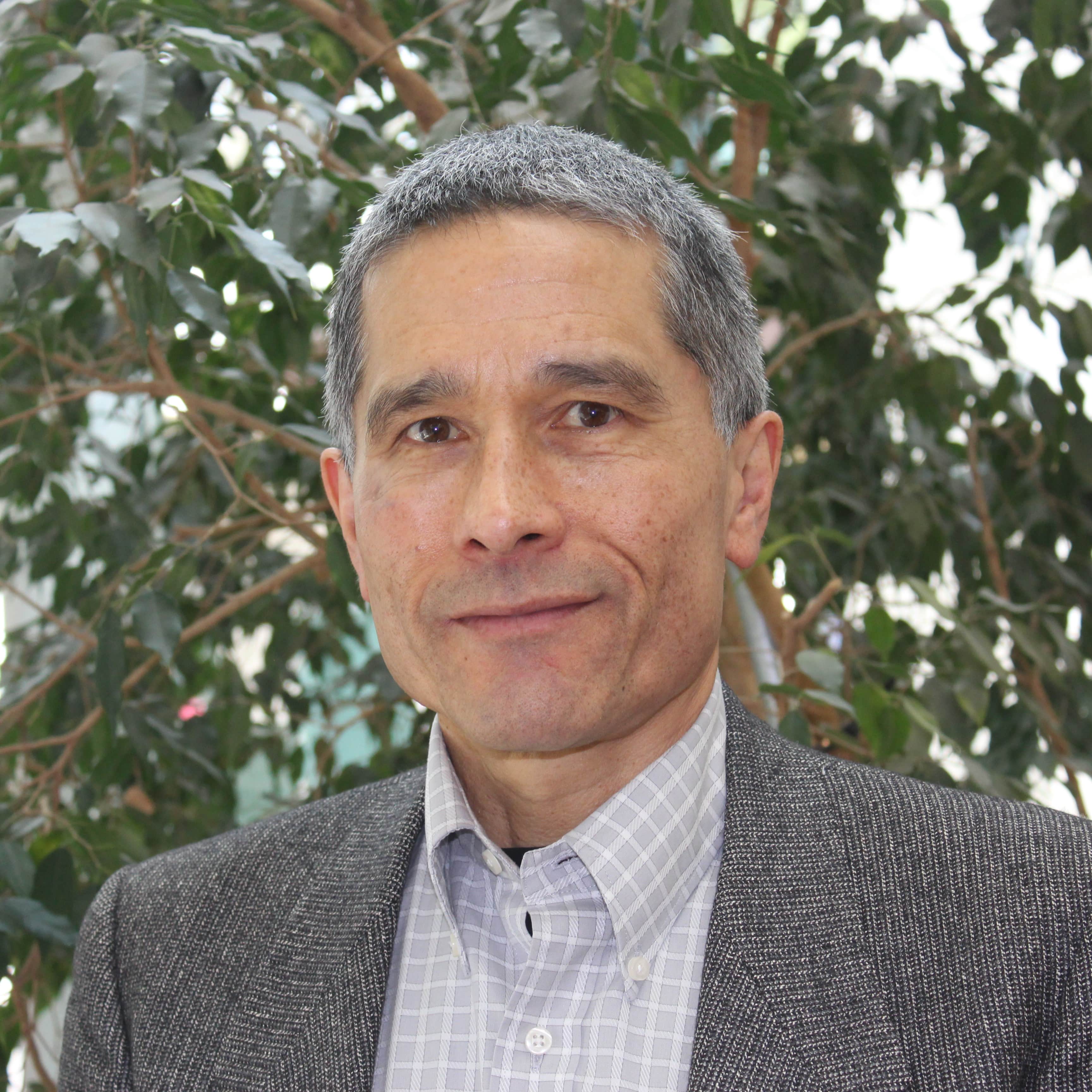
Department Chair & Professor, Teacher Education
Email: [email protected]
David A. Whitenack, Ph.D., Chair and Professor of the Teacher Education Department (TED) of the Lurie College of Education at San José State University (SJSU), is a graduate of the Language, Literacy, and Culture program of the Stanford University Graduate School of Education. He teaches a foundations and methods course focusing on emergent multilingual students, supervises pre-service teachers, and coordinates the graduate program in TED. Whitenack has published and presented in the areas of educating emergent multilingual students and related professional development, particularly in Professional Development Schools and other school-university partnerships. He has led professional development initiatives related to improving the teaching and learning of emergent multilingual students in local school districts and was Co-Principal Investigator of the U.S. Department of Education funded ELLISA Project, which focused on integrating English language and literacy development in CCSS / NGSS-aligned content-area curriculum and instruction. His subsequent work has built on the ELLISA practices through the Tier 1 Framework, a collaboration with SJSU Department of Special Education colleagues Andrea Golloher and Lisa Simpson focused on using an intersectional approach to prepare all classroom practitioners to develop the content knowledge and academic language of all students in the mainstream classroom. Whitenack and Simpson are currently Co-Directors and Co-Principal Investigators of SJSU Teacher Residency Partnerships (TRP), an expanding group of collaborative teacher preparation / professional development initiatives with local high-need school districts. The TRP recruits and develops diverse teachers, particularly targeting special education and bilingual education, and places them with mentors in year-long teacher residencies to create a teaching force that more closely mirrors local students, particularly in high-need schools and districts.
Yolanda Wiggins, Ph.D.
Assistant Professor, Sociology & Interdisciplinary Social Sciences
Sandra Zuniga Ruiz, Ph.D.
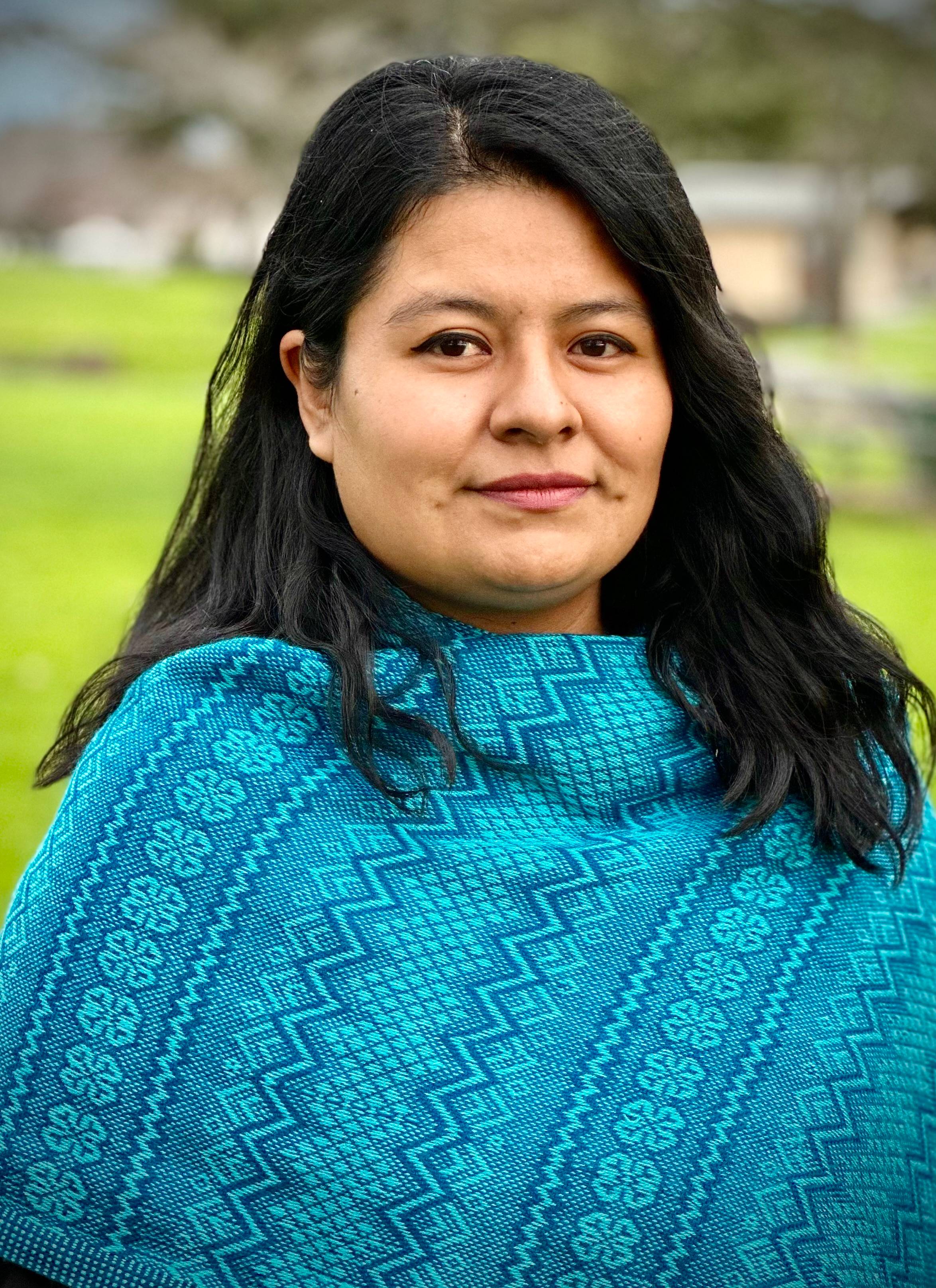
Assistant Professor, Teacher Education / Institute of Emancipatory Education (affiliated)
Email: [email protected]
Phone number: 408-924-4078
Professor Zuniga Ruiz is an Assistant Professor of K-12 Emancipatory Education in the Teacher Education Department at San José State University. Her work is grounded in Chicana/Latina feminist perspectives and critical approaches to learning that take a community-engaged, relational, and humanizing approach. She seeks to understand how teachers develop a vision of justice in mathematics education through cultivating dignity-affirming math learning environments. Her qualitative research aims to disrupt dominant approaches to research by considering critical methodologies such as pláticas & testimonios. She is currently working on a project funded by the National Academy and Bill and Melinda Gates Foundation, where she aims to understand how maestras Mexicanas embody emancipatory approaches to teaching and learning mathematics in their elementary classrooms. In another line of inquiry, she seeks to understand how bilingual elementary preservice teachers make sense/disrupt/embody narratives about language, mathematics, and learning. Her most recent project involves understanding how pre-service and in-service teachers can utilize AI to imagine and actualize an identity-affirming mathematics classroom.
Profé Zuniga Ruiz received the 2025 Association of Mathematics Teacher Educators Dissertation Award and was recognized as a 2024 ISLS Emerging Scholar. She holds a Ph.D. in Education from UC Berkeley, an M.A. in Mathematics from San Francisco State University, and a B.S. in Mathematics from California State University, Monterey Bay. Her research has been funded by competitive funding, including the Spencer Foundation and the National Academy of Education. Her most recent scholarship can be found in The AMTE Handbook for Mathematics Teacher Education, International Journal of Qualitative Research, Science and Children, and Teaching for Excellence and Equity in Mathematics.
Affiliated Faculty Directory, Bios, and Highlights
Lisa Andrew, Ed.D.
Lecturer, Ed.D. Leadership Program
Clover Codd, Ed.D.
Lecturer and Superintendent, Ed.D. Leadership Program and Moreland School District
Roxanne Fuentes, Ed.D.
Lecturer and Superintendent, Berryessa Union School District Ed.D. Leadership Program
Email: [email protected]
Phone number: (714) 310-4418
Dr. Roxane Fuentes is Superintendent of the Berryessa Union School District in San José, California—the district’s first Latina superintendent, appointed in 2017. Over more than 28 years in public education, she has served as an elementary teacher, instructional coach, principal, Assistant Superintendent of Educational Services, and Interim Superintendent. A first-generation college graduate, Dr. Fuentes works to close opportunity gaps by cultivating strong parent and community partnerships, expanding innovative learning experiences, and promoting a culture of equity, collaboration, and support. Under her leadership, student opportunities in Berryessa continue to grow.
A statewide and national voice on educational leadership, Dr. Fuentes currently serves as President of the California Association of Latino Superintendents and Administrators (CALSA) and as Vice President of the Association of California School Administrators (ACSA). She is a frequent panelist on leadership and equity, a mentor in the USC Rossier doctoral program and CALSA’s mentoring program, and an advisory board member for the School Employers Association of California and Voices4Equity. Her honors include Berryessa Citizens Advisory Council “Citizen of the Year” (2022), ACSA Region 15 Curriculum and Instruction Administrator of the Year (2015), CALSA “Honoring Our Own” Superintendent of the Year (2019), Silicon Valley Business Journal’s 100 Most Influential Women (2019), and Silicon Valley Education Foundation’s District Partner of the Year (2024).
Dr. Fuentes earned a B.A. in Political Science from the University of Southern California, an M.A. in History from California State University, Fullerton, an M.A. in Education Administration from California State University, Long Beach, and an Ed.D. in Educational Leadership from the University of Southern California (2015). She is a member of Phi Beta Kappa and a recipient of the Mellon Mays Undergraduate Fellowship.
Michael Gallagher, Ed.D.
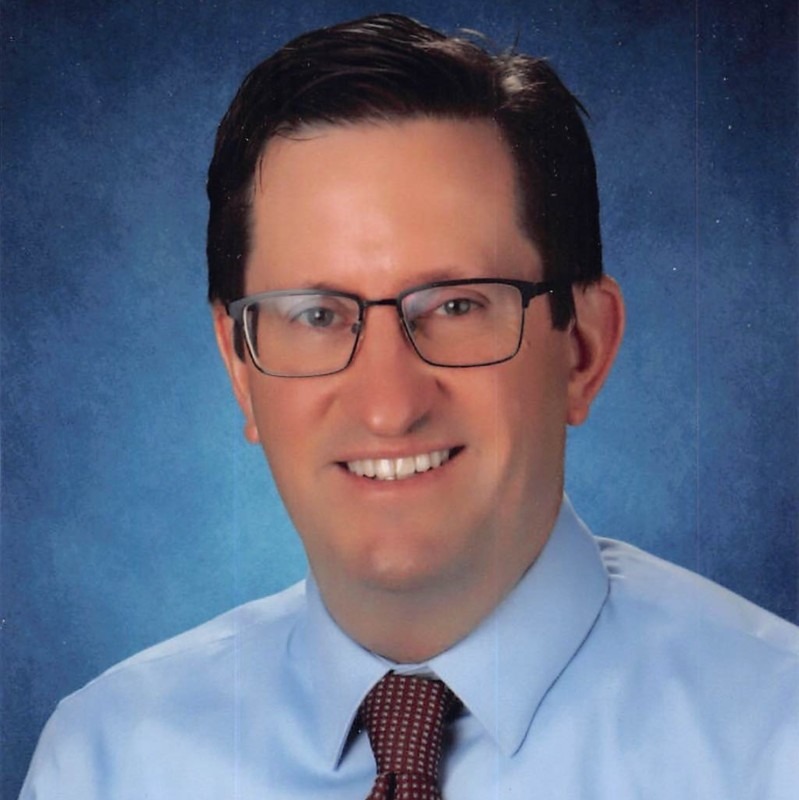
Affiliated Faculty, Educational Leadership / EdD
Email: [email protected]
Phone number: 408.823.1520
Michael Gallagher has served the public schools of Santa Clara County for more than thirty-five years as a high school teacher, counselor, and associate principal, as a middle school principal, as a district-level leader, and recently as Superintendent of Schools for Sunnyvale School District.
He earned MA degrees in Counseling Education (’94) and Educational Administration (’97) and a BA degree in English (’87), all from Santa Clara University. Michael earned a Doctor of Education degree from San Francisco State University while focusing on describing and supporting effective teachers in high poverty schools. He is recognized as an expert in Interest based bargaining and in supporting the social-emotional and cultural dimensions of teaching and learning for students, teachers, and staff. Michael teaches coursed including Leadership Theory and Practice, Organizational Change, Instructional Leadership, and Finance and Human Resources for Schools and Districts.
He is an advisory board member for the Center for Reaching and Teaching the Whole Child and for Santa Clara University’s College of Counseling, Psychology and Education.
Michael teaches in the Educational Leadership programs at Santa Clara University and San José State University. He is founder and Chief Leadership Consultant of ReflectFWD, focusing on empowering and growing education leaders and their teams.
Vinicio Lopez, Ph.D.
Lecturer, Ed.D. Leadership Program and President, Evergreen Valley College
Cyndee Mai Nguyen, Ed.D.
Lecturer, Ed.D. Leadership Program and Director of Curriculum, Instruction, and Assessment,
Mountain View Whisman School District
Email: [email protected]
Phone Number: 5103647480
Dr. Cyndee Mai Nguyen is a 20-plus year public school educator and is currently the Director of Curriculum, Instruction, and Assessment in the Mountain View Whisman School District. Her past professional roles have included Director of Early Literacy, Elementary Principal, Instructional Coach, and Kindergarten/1st Grade Teacher in MVWSD and Berkeley Unified School District.
Cyndee is a Bay Area native and proud product of California public education--earning her Ed.D at Fresno State ('24), and MA in Education ('05) and BA in English ('03) at UC Berkeley. Cyndee's research centers around social justice school leaders' identities. She has facilitated workshops at several national conferences about developing and maintaining a social justice leadership identity amongst a resistant neoliberal environment.
Cyndee is a guest lecturer in the Educational Leadership programs at San José State University.
John Pappalardo, Ed.D.
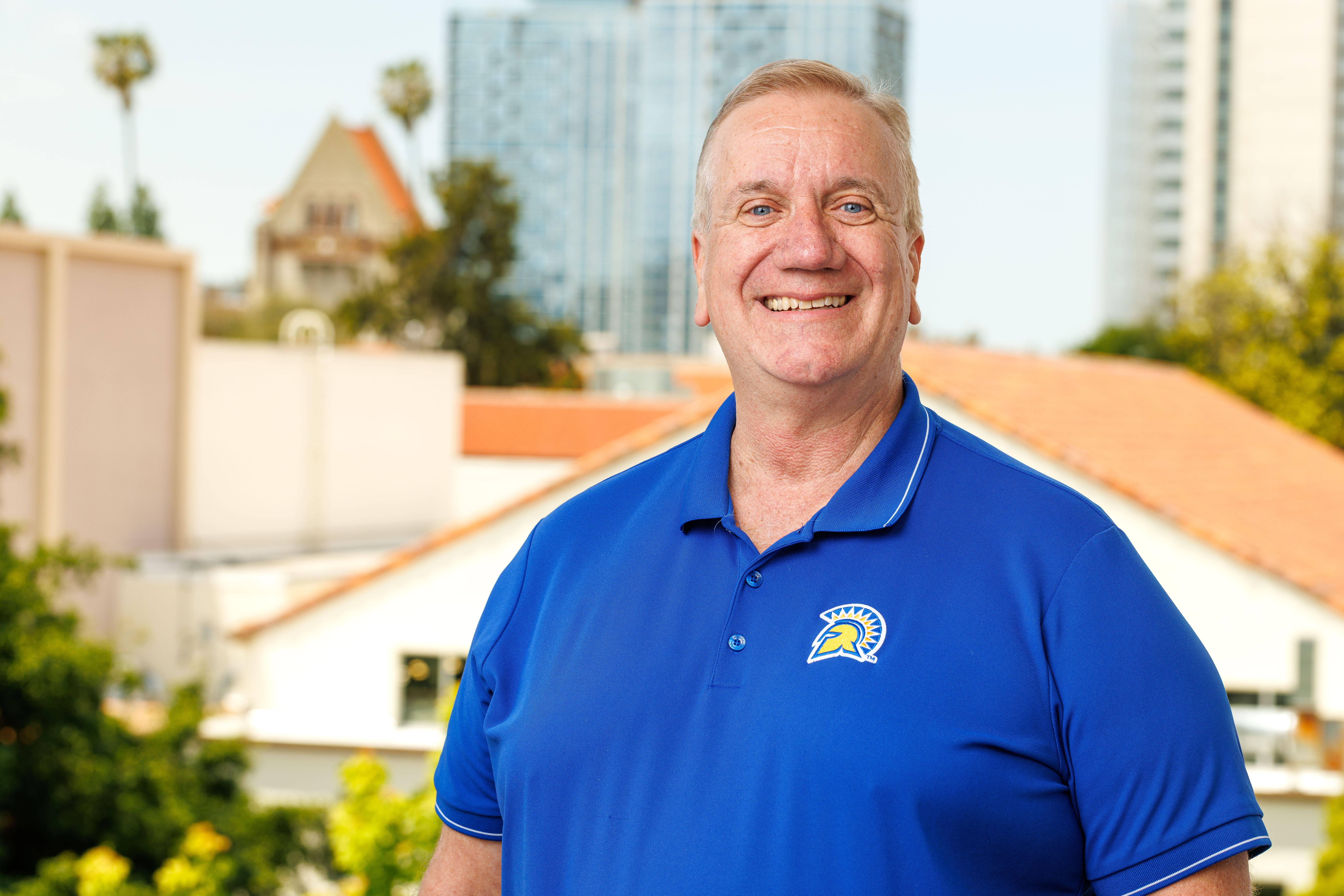
Lecturer, Ed.D. Leadership Program and Chief Financial Officer, Cambrian School District
Email: [email protected], [email protected]
Phone number: (626) 622-2862
Dr. John Pappalardo serves as a Lecturer in the Ed.D. Program at San José State University’s Connie L. Lurie College of Education. He teaches EDD 536: Politics of Education and Finance of Schooling, where he recently redesigned the course to align with the needs of doctoral students in educational leadership. Dr. Pappalardo brings more than 30 years of executive experience in California public schools, including roles as Superintendent, Chief Financial Officer, and Deputy Superintendent. He has also taught graduate-level courses at the University of La Verne and California State University, Los Angeles, with a focus on educational fiscal resource management and leadership development. His work integrates extensive administrative expertise with a commitment to preparing future educational leaders to successfully navigate the complexities of school systems.
Senorina (Noni) Reis, Ed.D.
Professor Emerita, Ed.D. Leadership
Rebecca Westover, Ed.D.
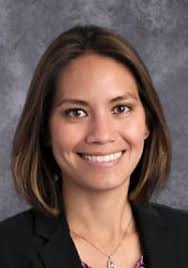
Lecturer, Ed.D. Leadership Program and Chief Business Officer.
Email: [email protected]
Phone Number: 509-998-1661
Dr. Rebecca Westover is Chief Business Officer of the Mountain View Whisman School District, a role she has held since 2015. She manages a $130 million annual operating budget and oversees a $250 million bond program, bringing strategic leadership in finance, operations, and governance to advance district and Board priorities. She played a central role in the passage of Measure T—a $259 million bond approved by 69.5% of voters—that funded districtwide infrastructure improvements and launched a nationally recognized staff housing initiative addressing Silicon Valley’s teacher shortage. During the COVID-19 pandemic, she led a real-time funding and communication strategy with regular updates and focus groups, ensuring every student had devices, connectivity, and technical support while cross-training staff to sustain essential business operations.
Dr. Westover’s career spans classroom teaching and site/district administration at the elementary, middle, and high school levels. As a science teacher, she increased AP Environmental Science pass rates from 55% to 70% and tripled enrollment by recruiting underrepresented students. As an elementary principal, she introduced Focus 30 and Professional Learning Communities, reducing the number of at-risk students to zero and lowering IEP identification through early intervention. At the middle school level, she designed master schedules around at-risk learners, implemented co-teaching models aligned to IEP goals, and led the Academic Student Team to coordinate comprehensive student supports.
A first-generation college graduate, Dr. Westover is committed to reducing barriers and expanding opportunity for all students. She holds a doctorate from the University of La Verne, teaching credentials from the University of California, Irvine, and both bachelor’s and master’s degrees from Gonzaga University. At San José State University, she brings the integrated perspective of teacher, principal, and CBO to doctoral students—connecting instructional leadership, equity-driven practice, and the operational systems that make student success possible.
